#Zhang Heng Ming
Text

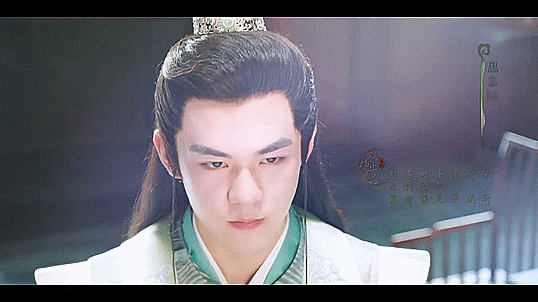
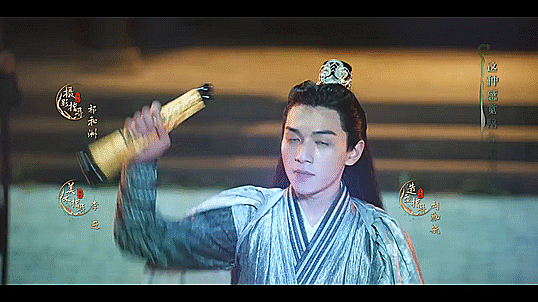
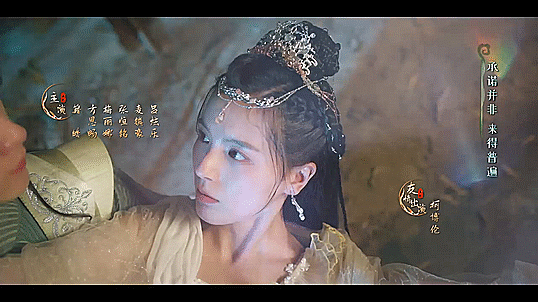


Cdrama: I Don't Want to Be the Princess (2023)
Gifs of Intro of cdrama "I Don't Want to Be the Princess"
[Multi-sub] 《我才不要当王妃》 第1集丨左叶 辛悦 籍皓 方思畅 张恒铭 麦镇豪 吕炫乐 柯博伦 I Don't Want to Be The Princess EP1 【捷成华视偶像剧场】
Watch this video on Youtube: https://www.youtube.com/watch?v=4JXl8x-ijro
#I Don't Want to Be the Princess#我才不要当王妃#Wo Cai Bu Yao Dang Wang Fei#Wang Fei Ni Wang Na Li Pao#王妃你往哪里跑#我才不要當王妃#王妃你往哪裡跑#2023#Youku#youtube#cdrama#chinese drama#episode 1#1st episode#Zuo Ye#Fang Si Chang#Xin Yue#Ji Hao#Zhang Heng Ming#Fresh Drama#Short Length Series#Web Series
3 notes
·
View notes
Text
DRAMA REVIEW | Blossoms in Adversity (2024)

I was in the mood for a historical romance story and Blossoms in Adversity seemed like a good idea since it features some of the actors I like. I was pleasantly surprised by this drama. I really thought it was going to be yet another run of the mill romance but what I found was so much more.
The story it's not about romance per se, that's a side story, the main plot of Blossoms in Adversity it's a family torn apart when their patriarch crosses the Emperor in the wrong way (for the right reasons). As a consequence the men, including the children, are exiled to the north and the women, find themselves without the family's fortune and no men to support them. So, out of necessity, they create a matriarchy and end up finding agency of their own for the first time ever with incredible results as they slowly rethink the "rules" they have been living by so far. Slowly, each women starts to show their true self, their personal interests and strong characteristics, they start business, struggle and succeed, the road it's never easy but their bond it's stronger.
I will be honest, you will have to push through at first. There’s some catty behaviour but it’s important to understand that most of these females characters never thought they would be anything other than brides or mothers, as set for the society, but these women prove to be mature and sensible enough to hold proper conversations with each other and realize why they need to work together.
The male lead's story it's also very interesting and it complements well the main characters but I found the women's story far more compelling. This drama is very uplifting and consistent in its characters's development, never betraying them.
I recommend it!
#blossoms in adversity#cdrama#2024#zhang jing yi#hu yi tian#caesar wu#lu yu xiao#bian cheng#myolie wu#eddy ko#yang ming na#tian miao#fang chu tong#cola yao#wang qiao xi#chen heng#wang li na#liu jia#huang si rui
5 notes
·
View notes
Note
a o e i i er ai ei ao ou an en ang eng ong i ia iao ie iu ian in iang ing iong u ua uo uai ui uan un uang ueng ü üe üan ün a o e er ai ao ou an en ang eng yi ya yao ye you yan yin yang ying yong wu wa wo wai wei wan wen wang weng yu yue yuan yun b ba bo bai bei bao ban ben bang beng bi biao bie bian bin bing bu p pa po pai pei pao pou pan pen pang peng pi piao pie pian pin ping pu m ma mo me mai mei mao mou man men mang meng mi miao mie miu mian min ming mu f fa fo fei fou fan fen fang feng fu d da de dai dei dao dou dan den dang deng dong di diao die diu dian ding du duo dui duan dun t ta te tai tei tao tou tan tang teng tong ti tiao tie tian ting tu tuo tui tuan tun n na ne nai nei nao nou nan nen nang neng nong ni niao nie niu nian nin niang ning nu nuo nuan nü nüe l la le lai lei lao lou lan lang leng long li lia liao lie liu lian lin liang ling lu luo luan lun lü lüe g ga ge gai gei gao gou gan gen gang geng gong gu gua guo guai gui guan gun guang k ka ke kai kei kao kou kan ken kang keng kong ku kua kuo kuai kui kuan kun kuang h ha he hai hei hao hou han hen hang heng hong hu hua huo huai hui huan hun huang z za ze zi zai zei zao zou zan zen zang zeng zong zu zuo zui zuan zun c ca ce ci cai cao cou can cen cang ceng cong cu cuo cui cuan cun s sa se si sai sao sou san sen sang seng song su suo sui suan sun zh zha zhe zhi zhai zhei zhao zhou zhan zhen zhang zheng zhong zhu zhua zhuo zhuai zhui zhuan zhun zhuang ch cha che chi chai chao chou chan chen chang cheng chong chu chua chuo chuai chui chuan chun chuang sh sha she shi shai shei shao shou shan shen shang sheng shu shua shuo shuai shui shuan shun shuang r re ri rao rou ran ren rang reng rong ru rua ruo rui ruan run j ji jia jiao jie jiu jian jin jiang jing jiong ju jue juan jun q qi qia qiao qie qiu qian qin qiang qing qiong qu que quan qun x xi xia xiao xie xiu xian xin xiang xing xiong xu xue xuan xun
NAKU 🫵
42 notes
·
View notes
Text
List of Gods, most of which are no longer worshipped. via /r/atheism
List of Gods, most of which are no longer worshipped.
Middle-East
A, Adad, Adapa, Adrammelech, Aeon, Agasaya, Aglibol, Ahriman, Ahura Mazda, Ahurani, Ai-ada, Al-Lat, Aja, Aka, Alalu, Al-Lat, Amm, Al-Uzza (El-'Ozza or Han-Uzzai), An, Anahita, Anath (Anat), Anatu, Anbay, Anshar, Anu, Anunitu, An-Zu, Apsu, Aqhat, Ararat, Arinna, Asherali, Ashnan, Ashtoreth, Ashur, Astarte, Atar, Athirat, Athtart, Attis, Aya, Baal (Bel), Baalat (Ba'Alat), Baau, Basamum, Beelsamin, Belit-Seri, Beruth, Borak, Broxa, Caelestis, Cassios, Lebanon, Antilebanon, and Brathy, Chaos, Chemosh, Cotys, Cybele, Daena, Daevas, Dagon, Damkina, Dazimus, Derketo, Dhat-Badan, Dilmun, Dumuzi (Du'uzu), Duttur, Ea, El, Endukugga, Enki, Enlil, Ennugi, Eriskegal, Ereshkigal (Allatu), Eshara, Eshmun, Firanak, Fravashi, Gatamdug, Genea, Genos, Gestinanna, Gula, Hadad, Hannahanna, Hatti, Hea, Hiribi, The Houri, Humban, Innana, Ishkur, Ishtar, Ithm, Jamshid or Jamshyd, Jehovah, Jesus, Kabta, Kadi, Kamrusepas, Ki (Kiki), Kingu, Kolpia, Kothar-u-Khasis, Lahar, Marduk, Mari, Meni, Merodach, Misor, Moloch, Mot, Mushdama, Mylitta, Naamah, Nabu (Nebo), Nairyosangha, Nammu, Namtaru, Nanna, Nebo, Nergal, Nidaba, Ninhursag or Nintu, Ninlil, Ninsar, Nintur, Ninurta, Pa, Qadshu, Rapithwin, Resheph (Mikal or Mekal), Rimmon, Sadarnuna, Shahar, Shalim, Shamish, Shapshu, Sheger, Sin, Siris (Sirah), Taautos, Tammuz, Tanit, Taru, Tasimmet, Telipinu, Tiamat, Tishtrya, Tsehub, Utnapishtim, Utu, Wurusemu, Yam, Yarih (Yarikh), Yima, Zaba, Zababa, Zam, Zanahary (Zanaharibe), Zarpandit, Zarathustra, Zatavu, Zazavavindrano, Ziusudra, Zu (Imdugud), Zurvan
China:
Ba, Caishen, Chang Fei, Chang Hsien, Chang Pan, Ch'ang Tsai, Chao san-Niang, Chao T'eng-k'ang, Chen Kao, Ch'eng Huang, Cheng San-Kung, Cheng Yuan-ho, Chi Po, Chien-Ti, Chih Jih, Chih Nii, Chih Nu, Ch'ih Sung-tzu, Ching Ling Tzu, Ch'ing Lung, Chin-hua Niang-niang, Chio Yuan-Tzu, Chou Wang, Chu Niao, Chu Ying, Chuang-Mu, Chu-jung, Chun T'i, Ch'ung Ling-yu, Chung Liu, Chung-kuei, Chung-li Ch'üan, Di Jun, Fan K'uei, Fei Lien, Feng Pho-Pho, Fengbo, Fu Hsing, Fu-Hsi, Fu-Pao, Gaomei, Guan Di, Hao Ch'iu, Heng-o, Ho Po (Ping-I), Hou Chi, Hou T'u, Hsi Ling-su, Hsi Shih, Hsi Wang Mu, Hsiao Wu, Hsieh T'ien-chun, Hsien Nung, Hsi-shen, Hsu Ch'ang, Hsuan Wen-hua, Huang Ti, Huang T'ing, Huo Pu, Hu-Shen, Jen An, Jizo Bosatsu, Keng Yen-cheng, King Wan, Ko Hsien-Weng, Kuan Ti, Kuan Ti, Kuei-ku Tzu, Kuo Tzu-i, Lai Cho, Lao Lang, Lei Kung, Lei Tsu, Li Lao-chun, Li Tien, Liu Meng, Liu Pei, Lo Shen, Lo Yu, Lo-Tsu Ta-Hsien, Lu Hsing, Lung Yen, Lu-pan, Ma-Ku, Mang Chin-i, Mang Shen, Mao Meng, Men Shen, Miao Hu, Mi-lo Fo, Ming Shang, Nan-chi Hsien-weng, Niu Wang, Nu Wa, Nu-kua, Pa, Pa Cha, Pai Chung, Pai Liu-Fang, Pai Yu, P'an Niang, P'an-Chin-Lien, Pao Yuan-ch'uan, Phan Ku, P'i Chia-Ma, Pien Ho, San Kuan, Sao-ch'ing Niang, Sarudahiko, Shang Chien, Shang Ti, She chi, Shen Hsui-Chih, Shen Nung, Sheng Mu, Shih Liang, Shiu Fang, Shou-lao, Shun I Fu-jen, Sien-Tsang, Ssu-ma Hsiang-ju, Sun Pin, Sun Ssu-miao, Sung-Chiang, Tan Chu, T'ang Ming Huang, Tao Kung, T'ien Fei, Tien Hou, Tien Mu, Ti-tsang, Tsai Shen, Ts'an Nu, Ts'ang Chien, Tsao Chun, Tsao-Wang, T'shai-Shen, Tung Chun, T'ung Chung-chung, T'ung Lai-yu, Tung Lu, T'ung Ming, Tzu-ku Shen, Wa, Wang Ta-hsien, Wang-Mu-Niang-Niang, Weiwobo, Wen-ch'ang, Wu-tai Yuan-shuai, Xi Hou, Xi Wangmu, Xiu Wenyin, Yanwang, Yaoji, Yen-lo, Yen-Lo-Wang, Yi, Yu, Yu Ch'iang, Yu Huang, Yun-T'ung, Yu-Tzu, Zaoshen, Zhang Xi, , Zhinü, , Zhongguei, , Zigu Shen, , Zisun, Ch'ang-O
Slavic:
Aba-khatun, Aigiarm, Ajysyt, Alkonost, Almoshi, Altan-Telgey, Ama, Anapel, As-ava, Ausaitis, Austeja, Ayt'ar, Baba Yaga (Jezi Baba), Belobog (Belun), Boldogasszony, Breksta, Bugady Musun, Chernobog (Crnobog, Czarnobog, Czerneboch, Cernobog), Cinei-new, Colleda (Koliada), Cuvto-ava, Dali, Darzu-mate, Dazhbog, Debena, Devana, Diiwica (Dilwica), Doda (Dodola), Dolya, Dragoni, Dugnai, Dunne Enin, Edji, Elena, Erce, Etugen, Falvara, The Fates, The Fatit, Gabija, Ganiklis, Giltine, Hotogov Mailgan, Hov-ava, Iarila, Isten, Ja-neb'a, Jedza, Joda-mate, Kaldas, Kaltes, Keretkun, Khadau, Khursun (Khors), Kostrubonko, Kovas, Krumine, Kupala, Kupalo, Laima, Leshy, Marina, Marzana, Matergabiae, Mat Syra Zemlya, Medeine, Menu (Menulis), Mir-Susne-Khum, Myesyats, Nastasija, (Russia) Goddess of sleep., Nelaima, Norov, Numi-Tarem, Nyia, Ora, Ot, Patollo, Patrimpas, Pereplut, Perkuno, Perun, Pikuolis, Pilnytis, Piluitus, Potrimpo, Puskaitis, Rod, Rugevit, Rultennin, Rusalki, Sakhadai-Noin, Saule, Semargl, Stribog, Sudjaje, Svantovit (Svantevit, Svitovyd), Svarazic (Svarozic, Svarogich), Tengri, Tñairgin, Triglav, Ulgen (Ulgan, Ülgön), Veles (Volos), Vesna, Xatel-Ekwa, Xoli-Kaltes, Yamm, Yarilo, Yarovit, Ynakhsyt, Zaria, Zeme mate, Zemyna, Ziva (Siva), Zizilia, Zonget, Zorya, Zvoruna, Zvezda Dennitsa, Zywie
Hindu
Aditi, Adityas, Ambika, Ananta (Shesha), Annapurna (Annapatni), Aruna, Ashvins, Balarama, Bhairavi, Brahma, Buddha, Dakini, Devi, Dharma, Dhisana, Durga, Dyaus, Ganesa (Ganesha), Ganga (Ganges), Garuda, Gauri, Gopis, Hanuman, Hari-Hara, Hulka Devi, Jagganath, Jyeshtha, Kama, Karttikeya, Krishna, Krtya, Kubera, Kubjika, Lakshmi or Laksmi, Manasha, Manu, Maya, Meru, Nagas, Nandi, Naraka, Nataraja, Nirriti, Parjanya, Parvati, Paurnamasi, Prithivi, Purusha, Radha, Rati, Ratri, Rudra, Sanjna, Sati, Shashti, Shatala, Sitala (Satala), Skanda, Sunrta, Surya, Svasti-devi, Tvashtar, Uma, Urjani, Vach, Varuna, Vayu, Vishnu (Avatars of Vishnu: Matsya; Kurma; Varaha; Narasinha; Vamana; Parasurama; Rama; Krishna; Buddha; Kalki), Vishvakarman, Yama, Sraddha
Japan: Aji-Suki-Taka-Hi-Kone, Ama no Uzume, Ama-terasu, Amatsu Mikaboshi, Benten (Benzai-Ten), Bishamon, Chimata-No-Kami, Chup-Kamui, Daikoku, Ebisu, Emma-O, Fudo, Fuji, Fukurokuju, Gekka-O, Hachiman, Hettsui-No-Kami, Ho-Masubi, Hotei, Inari, Izanagi and Izanami, Jizo Bosatsu, Jurojin, Kagutsuchi, Kamado-No-Kami, Kami, Kawa-No-Kami, Kaya-Nu-Hima, Kishijoten, Kishi-Mojin, Kunitokotatchi, Marici, Monju-Bosatsu, Nai-No-Kami, No-Il Ja-Dae, O-Kuni-Nushi, Omoigane, Raiden, Shine-Tsu-Hiko, Shoten, Susa-no-wo, Tajika-no-mikoto, Tsuki-yomi, Uka no Mitanna, Uke-mochi, Uso-dori, Uzume, Wakahirume, Yainato-Hnneno-Mikoi, Yama-No-Kami, Yama-no-Karni, Yaya-Zakurai, Yuki-Onne
India
Agni, Ammavaru, Asuras, Banka-Mundi, Brihaspati, Budhi Pallien, Candi, Challalamma, Chinnintamma, Devas, Dyaush, Gauri-Sankar, Grhadevi, Gujeswari, Indra, Kali, Lohasur Devi, Mayavel, Mitra, Prajapati, Puchan, Purandhi, Rakshas, Rudrani, Rumina, Samundra, Sarasvati, Savitar, Siva (Shiva), Soma, Sura, Surabhi, Tulsi, Ushas, Vata, Visvamitra, Vivasvat, Vritra, Waghai Devi, Yaparamma, Yayu, Zumiang Nui, Diti
Other Asian: Dewi Shri, Po Yan Dari, Shuzanghu, Antaboga, Yakushi Nyorai, Mulhalmoni, Tankun, Yondung Halmoni, Aryong Jong, Quan Yin , Tengri, Uminai-gami, Kamado-No-Kami, Kunitokotatchi, Giri Devi, Dewi Nawang Sasih, Brag-srin-mo, Samanta-Bhadra, Sangs-rgyas-mkhá, Sengdroma, Sgeg-mo-ma, Tho-og, Ui Tango, Yum-chen-mo, Zas-ster-ma-dmar-mo, Chandra, Dyaus, Ratri, Rodasi, Vayu, Au-Co
African Gods, Demigods and First Men:
Abassi , Abuk , Adu Ogyinae , Agé , Agwe , Aida Wedo , Ajalamo, Aje, Ajok, Akonadi, Akongo, Akuj, Amma, Anansi, Asase Yaa, Ashiakle, Atai , Ayaba, Aziri, Baatsi, Bayanni, Bele Alua, Bomo rambi, Bosumabla, Buk, Buku, Bumba, Bunzi, Buruku, Cagn, Candit, Cghene, Coti, Damballah-Wedo, Dan, Deng, Domfe, Dongo, Edinkira, Efé, Egungun-oya, Eka Abassi, Elephant Girl Mbombe, Emayian, Enekpe, En-Kai, Eseasar, Eshu, Esu, Fa, Faran, Faro, Fatouma, Fidi Mukullu, Fon, Gleti, Gonzuole, Gû, Gua, Gulu, Gunab, Hammadi, Hêbiesso, Iku, Ilankaka, Imana, Iruwa, Isaywa, Juok, Kazooba, Khakaba, Khonvum, Kibuka, Kintu, Lebé, Leza, Libanza, Lituolone, Loko, Marwe, Massim Biambe, Mawu-Lisa (Leza), Mboze, Mebeli, Minepa, Moombi, Mukameiguru, Mukasa, Muluku, Mulungu, Mwambu, Nai, Nambi, Nana Buluku, Nanan-Bouclou, Nenaunir, Ng Ai, Nyaliep, Nyambé, Nyankopon, Nyasaye, Nzame, Oboto, Obumo, Odudua-Orishala, Ogun, Olokun, Olorun, Orisha Nla, Orunmila, Osanyin, Oshe, Osun, Oya, Phebele, Pokot-Suk, Ralubumbha, Rugaba, Ruhanga, Ryangombe, Sagbata, Shagpona, Shango, Sopona, Tano, Thixo, Tilo, Tokoloshi, Tsui, Tsui'goab, Umvelinqangi, Unkulunkulu, Utixo, Wak, Wamara, Wantu Su, Wele, Were, Woto, Xevioso, Yangombi, Yemonja, Ymoa, Ymoja, Yoruba, Zambi, Zanahary , Zinkibaru
Australian Gods, Goddesses and Places in the Dreamtime:
Alinga, Anjea, Apunga, Arahuta, Ariki, Arohirohi, Bamapana, Banaitja, Bara, Barraiya, Biame, Bila, Boaliri, Bobbi-bobbi, Bunbulama, Bunjil, Cunnembeille, Daramulum, Dilga, Djanggawul Sisters, Eingana, Erathipa, Gidja , Gnowee, Haumia, Hine Titama, Ingridi, Julana, Julunggul, Junkgowa, Karora, Kunapipi-Kalwadi-Kadjara, Lia, Madalait, Makara, Nabudi, Palpinkalare, Papa, Rangi, Rongo, Tane, Tangaroa, Tawhiri-ma-tea, Tomituka, Tu, Ungamilia, Walo, Waramurungundi, Wati Kutjarra, Wawalag Sisters, Wuluwaid, Wuragag, Wuriupranili, Wurrunna, Yhi
Buddhism, Gods and Relatives of God:
Aizen-Myoo, Ajima,Dai-itoku-Myoo, Fudo-Myoo, Gozanze-Myoo, Gundari-Myoo, Hariti, Kongo-Myoo, Kujaku-Myoo, Ni-O
Carribean: Gods, Monsters and Vodun Spirits
Agaman Nibo , Agwe, Agweta, Ah Uaynih, Aida Wedo , Atabei , Ayida , Ayizan, Azacca, Baron Samedi, Ulrich, Ellegua, Ogun, Ochosi, Chango, Itaba, Amelia, Christalline, Clairmé, Clairmeziné, Coatrischie, Damballah , Emanjah, Erzuli, Erzulie, Ezili, Ghede, Guabancex, Guabonito, Guamaonocon, Imanje, Karous, Laloue-diji, Legba, Loa, Loco, Maitresse Amelia , Mapiangueh, Marie-aimée, Marinette, Mombu, Marassa, Nana Buruku, Oba, Obtala, Ochu, Ochumare, Oddudua, Ogoun, Olokum, Olosa, Oshun, Oya, Philomena, Sirêne, The Diablesse, Itaba, Tsilah, Ursule, Vierge, Yemaya , Zaka
Celtic: Gods, Goddesses, Divine Kings and Pagan Saints
Abarta, Abna, Abnoba, Aine, Airetech,Akonadi, Amaethon, Ameathon, An Cailleach, Andraste, Antenociticus, Aranrhod, Arawn, Arianrod, Artio, Badb,Balor, Banbha, Becuma, Belatucadros, Belatu-Cadros, Belenus, Beli,Belimawr, Belinus, Bendigeidfran, Bile, Blathnat, Blodeuwedd, Boann, Bodus,Bormanus, Borvo, Bran, Branwen, Bres, Brigid, Brigit, Caridwen, Carpantus,Cathbadh, Cecht, Cernach, Cernunnos, Cliodna, Cocidius, Conchobar, Condatis, Cormac,Coronus,Cosunea, Coventina, Crarus,Creidhne, Creirwy, Cu Chulainn, Cu roi, Cuda, Cuill,Cyhiraeth,Dagda, Damona, Dana, Danu, D'Aulnoy,Dea Artio, Deirdre , Dewi, Dian, Diancecht, Dis Pater, Donn, Dwyn, Dylan, Dywel,Efnisien, Elatha, Epona, Eriu, Esos, Esus, Eurymedon,Fedelma, Fergus, Finn, Fodla, Goewyn, Gog, Goibhniu, Govannon , Grainne, Greine,Gwydion, Gwynn ap Nudd, Herne, Hu'Gadarn, Keltoi,Keridwen, Kernunnos,Ler, Lir, Lleu Llaw Gyffes, Lludd, Llyr, Llywy, Luchta, Lug, Lugh,Lugus, Mabinogion,Mabon, Mac Da Tho, Macha, Magog, Manannan, Manawydan, Maponos, Math, Math Ap Mathonwy, Medb, Moccos,Modron, Mogons, Morrig, Morrigan, Nabon,Nantosuelta, Naoise, Nechtan, Nedoledius,Nehalennia, Nemhain, Net,Nisien, Nodens, Noisi, Nuada, Nwywre,Oengus, Ogma, Ogmios, Oisin, Pach,Partholon, Penard Dun, Pryderi, Pwyll, Rhiannon, Rosmerta, Samhain, Segidaiacus, Sirona, Sucellus, Sulis, Taliesin, Taranis, Teutates, The Horned One,The Hunt, Treveni,Tyne, Urien, Ursula of the Silver Host, Vellaunus, Vitiris, White Lady
Egyptian: Gods, Gods Incarnate and Personified Divine Forces:
Amaunet, Amen, Amon, Amun, Anat, Anqet, Antaios, Anubis, Anuket, Apep, Apis, Astarte, Aten, Aton, Atum, Bastet, Bat, Buto, Duamutef, Duamutef, Hapi, Har-pa-khered, Hathor, Hauhet, Heket, Horus, Huh, Imset, Isis, Kauket, Kebechsenef, Khensu, Khepri, Khnemu, Khnum, Khonsu, Kuk, Maahes, Ma'at, Mehen, Meretseger, Min, Mnewer, Mut, Naunet, Nefertem, Neith, Nekhbet, Nephthys, Nun, Nut, Osiris, Ptah, Ra , Re, Renenet, Sakhmet, Satet, Seb, Seker, Sekhmet, Serapis, Serket, Set, Seth, Shai, Shu, Shu, Sia, Sobek, Sokar, Tefnut, Tem, Thoth
Hellenes (Greek) Tradition (Gods, Demigods, Divine Bastards)
Acidalia, Aello, Aesculapius, Agathe, Agdistis, Ageleia, Aglauros, Agne, Agoraia, Agreia, Agreie, Agreiphontes, Agreus, Agrios, Agrotera, Aguieus, Aidoneus, Aigiokhos, Aigletes, Aigobolos, Ainia,Ainippe, Aithuia , Akesios, Akraia, Aktaios, Alalkomene, Alasiotas, Alcibie, Alcinoe, Alcippe, Alcis,Alea, Alexikakos, Aligena, Aliterios, Alkaia, Amaltheia, Ambidexter, Ambologera, Amynomene,Anaduomene, Anaea, Anax, Anaxilea, Androdameia,Andromache, Andromeda, Androphonos, Anosia, Antandre,Antania, Antheus, Anthroporraistes, Antianara, Antianeira, Antibrote, Antimache, Antimachos, Antiope,Antiopeia, Aoide, Apatouria, Aphneius, Aphrodite, Apollo, Apotropaios, Areia, Areia, Areion, Areopagite, Ares, Areto, Areximacha,Argus, Aridnus,Aristaios, Aristomache, Arkhegetes, Arktos, Arretos, Arsenothelys, Artemis, Asclepius, Asklepios, Aspheleios, Asteria, Astraeos , Athene, Auxites, Avaris, Axios, Axios Tauros,Bakcheios, Bakchos, Basileus, Basilis, Bassareus, Bauros, Boophis, Boreas , Botryophoros, Boukeros, Boulaia, Boulaios, Bremusa,Bromios, Byblis,Bythios, Caliope, Cedreatis, Celaneo, centaur, Cerberus, Charidotes, Charybdis, Chimera, Chloe, Chloris , Choreutes, Choroplekes, Chthonios, Clete, Clio, clotho,Clyemne, cockatrice, Crataeis, Custos, Cybebe, Cybele, Cyclops, Daphnaia, Daphnephoros, Deianeira, Deinomache, Delia, Delios, Delphic, Delphinios, Demeter, Dendrites, Derimacheia,Derinoe, Despoina, Dikerotes, Dimeter, Dimorphos, Dindymene, Dioktoros, Dionysos, Discordia, Dissotokos, Dithyrambos, Doris, Dryope,Echephyle,Echidna, Eiraphiotes, Ekstatophoros, Eleemon, Eleuthereus, Eleutherios, Ennosigaios, Enodia, Enodios, Enoplios, Enorches, Enualios, Eos , Epaine, Epidotes, Epikourios, Epipontia, Epitragidia, Epitumbidia, Erato, Ergane, Eribromios, Erigdoupos, Erinus, Eriobea, Eriounios, Eriphos, Eris, Eros,Euanthes, Euaster, Eubouleus, Euboulos, Euios, Eukhaitos, Eukleia, Eukles, Eumache, Eunemos, Euplois, Euros , Eurybe,Euryleia, Euterpe, Fates,Fortuna, Gaia, Gaieokhos, Galea, Gamelia, Gamelios, Gamostolos, Genetor, Genetullis, Geryon, Gethosynos, giants, Gigantophonos, Glaukopis, Gorgons, Gorgopis, Graiae, griffin, Gynaikothoinas, Gynnis, Hagisilaos, Hagnos, Haides, Harmothoe, harpy, Hegemone, Hegemonios, Hekate, Hekatos, Helios, Hellotis, Hephaistia, Hephaistos, Hera, Heraios, Herakles, Herkeios, Hermes, Heros Theos, Hersos, Hestia, Heteira, Hiksios, Hipp, Hippia, Hippios, Hippoi Athanatoi, Hippolyte, Hippolyte II,Hippomache,Hippothoe, Horkos, Hugieia, Hupatos, Hydra, Hypate, Hyperborean, Hypsipyle, Hypsistos, Iakchos, Iatros, Idaia, Invictus, Iphito,Ismenios, Ismenus,Itonia, Kabeiria, Kabeiroi, Kakia, Kallinikos, Kallipugos, Kallisti, Kappotas, Karneios, Karpophoros, Karytis, Kataibates, Katakhthonios, Kathatsios, Keladeine, Keraunos, Kerykes, Khalinitis, Khalkioikos, Kharmon, Khera, Khloe, Khlori,Khloris,Khruse, Khthonia, Khthonios, Kidaria, Kissobryos, Kissokomes, Kissos, Kitharodos, Kleidouchos, Kleoptoleme, Klymenos, Kore, Koruthalia, Korymbophoros, Kourotrophos, Kranaia, Kranaios, Krataiis, Kreousa, Kretogenes, Kriophoros, Kronides, Kronos,Kryphios, Ktesios, Kubebe, Kupris, Kuprogenes, Kurotrophos, Kuthereia, Kybele, Kydoime,Kynthia, Kyrios, Ladon, Lakinia, Lamia, Lampter, Laodoke, Laphria, Lenaios, Leukatas, Leukatas, Leukolenos, Leukophruene, Liknites, Limenia, Limnaios, Limnatis, Logios, Lokhia, Lousia, Loxias, Lukaios, Lukeios, Lyaios, Lygodesma, Lykopis, Lyseus, Lysippe, Maimaktes, Mainomenos, Majestas, Makar, Maleatas, Manikos, Mantis, Marpe, Marpesia, Medusa, Megale, Meilikhios, Melaina, Melainis, Melanaigis, Melanippe,Melete, Melousa, Melpomene, Melqart, Meses, Mimnousa, Minotaur, Mneme, Molpadia,Monogenes, Morpho, Morychos, Musagates, Musagetes, Nebrodes, Nephelegereta, Nereus,Nete, Nike, Nikephoros, Nomios, Nomius, Notos , Nyktelios, Nyktipolos, Nympheuomene, Nysios, Oiketor, Okyale, Okypous, Olumpios, Omadios, Ombrios, Orithia,Orius,Ortheia, Orthos, Ourania, Ourios, Paelemona, Paian, Pais, Palaios, Pallas, Pan Megas, Panakhais, Pandemos, Pandrosos, Pantariste, Parthenos, PAsianax, Pasiphaessa, Pater, Pater, Patroo s, Pegasus, Pelagia, Penthesilea, Perikionios, Persephone, Petraios, Phanes, Phanter, Phatria, Philios, Philippis, Philomeides, Phoebe, Phoebus, Phoenix, Phoibos, Phosphoros, Phratrios, Phutalmios, Physis, Pisto, Plouton, Polemusa,Poliakhos, Polias, Polieus, Polumetis, Polydektes, Polygethes, Polymnia, Polymorphos, Polyonomos, Porne, Poseidon, Potnia Khaos, Potnia Pheron, Promakhos, Pronoia, Propulaios, Propylaia, Proserpine, Prothoe, Protogonos, Prytaneia, Psychopompos, Puronia, Puthios, Pyrgomache, Python, Rhea, Sabazios, Salpinx, satyr, Saxanus, Scyleia,Scylla, sirens, Skeptouchos, Smintheus, Sophia, Sosipolis, Soter, Soteria, Sphinx, Staphylos, Sthenias, Sthenios, Strife, Summakhia, Sykites, Syzygia, Tallaios, Taureos, Taurokeros, Taurophagos, Tauropolos, Tauropon, Tecmessa, Teisipyte, Teleios, Telepyleia,Teletarches, Terpsichore, Thalestris, Thalia, The Dioskouroi, Theos, Theritas, Thermodosa, Thraso, Thyonidas, Thyrsophoros, Tmolene, Toxaris, Toxis, Toxophile,Trevia, Tricephalus, Trieterikos, Trigonos, Trismegestos, Tritogeneia, Tropaios, Trophonius,Tumborukhos, Tyche, Typhon, Urania, Valasca, Xanthippe, Xenios, Zagreus, Zathos, Zephryos , Zeus, Zeus Katakhthonios, Zoophoros Topana
Native American: Gods, Heroes, and Anthropomorphized Facets of Nature
Aakuluujjusi, Ab Kin zoc, Abaangui , Ababinili , Ac Yanto, Acan, Acat, Achiyalatopa , Acna, Acolmiztli, Acolnahuacatl, Acuecucyoticihuati, Adamisil Wedo, Adaox , Adekagagwaa , Adlet , Adlivun, Agloolik , Aguara , Ah Bolom Tzacab, Ah Cancum, Ah Chun Caan, Ah Chuy Kak, Ah Ciliz, Ah Cun Can, Ah Cuxtal, Ah hulneb, Ah Kin, Ah Kumix Uinicob, Ah Mun, Ah Muzencab, Ah Patnar Uinicob, Ah Peku, Ah Puch, Ah Tabai, Ah UincirDz'acab, Ah Uuc Ticab, Ah Wink-ir Masa, Ahau Chamahez, Ahau-Kin, Ahmakiq, Ahnt Alis Pok', Ahnt Kai', Aholi , Ahsonnutli , Ahuic, Ahulane, Aiauh, Aipaloovik , Ajbit, Ajilee , Ajtzak, Akbaalia , Akba-atatdia , Akhlut , Akhushtal, Akna , Akycha, Alaghom Naom Tzentel, Albino Spirit animals , Alektca , Alignak, Allanque , Allowat Sakima , Alom, Alowatsakima , Amaguq , Amala , Amimitl, Amitolane, Amotken , Andaokut , Andiciopec , Anerneq , Anetlacualtiliztli, Angalkuq , Angpetu Wi, Anguta, Angwusnasomtaka , Ani Hyuntikwalaski , Animal spirits , Aningan, Aniwye , Anog Ite , Anpao, Apanuugak , Apicilnic , Apikunni , Apotamkin , Apoyan Tachi , Apozanolotl, Apu Punchau, Aqalax , Arendiwane , Arnakua'gsak , Asdiwal , Asgaya Gigagei, Asiaq , Asin , Asintmah, Atacokai , Atahensic, Aticpac Calqui Cihuatl, Atira, Atisokan , Atius Tirawa , Atl, Atlacamani, Atlacoya, Atlatonin, Atlaua, Atshen , Auilix, Aulanerk , Aumanil , Aunggaak , Aunt Nancy , Awaeh Yegendji , Awakkule , Awitelin Tsta , Awonawilona, Ayauhteotl, Azeban, Baaxpee , Bacabs, Backlum Chaam, Bagucks , Bakbakwalanooksiwae , Balam, Baldhead , Basamacha , Basket Woman , Bead Spitter , Bear , Bear Medicine Woman , Bear Woman , Beaver , Beaver Doctor , Big Heads, Big Man Eater , Big Tail , Big Twisted Flute , Bikeh hozho, Bitol, Black Hactcin , Black Tamanous , Blind Boy , Blind Man , Blood Clot Boy , Bloody Hand , Blue-Jay , Bmola , Bolontiku, Breathmaker, Buffalo , Buluc Chabtan, Burnt Belly , Burnt Face , Butterfly , Cabaguil, Cacoch, Cajolom, Cakulha, Camaxtli, Camozotz, Cannibal Grandmother , Cannibal Woman , Canotila , Capa , Caprakan, Ca-the-ña, Cauac, Centeotl, Centzonuitznaua, Cetan , Chac Uayab Xoc, Chac, Chahnameed , Chakwaina Okya, Chalchihuitlicue, Chalchiuhtlatonal, Chalchiutotolin, Chalmecacihuilt, Chalmecatl, Chamer, Changing Bear Woman , Changing Woman , Chantico, Chaob, Charred Body , Chepi , Chibiabos ,Chibirias, Chiccan, Chicomecoatl, Chicomexochtli, Chiconahui, Chiconahuiehecatl, Chie, Child-Born-in-Jug , Chirakan, Chulyen , Cihuacoatl, Cin-an-ev , Cinteotl, Cipactli, Cirapé , Cit Chac Coh, Cit-Bolon-Tum, Citlalatonac, Citlalicue, Ciucoatl, Ciuteoteo, Cizin, Cliff ogre , Coatlicue, Cochimetl, Cocijo, Colel Cab, Colop U Uichkin, Copil, Coyolxauhqui, Coyopa, Coyote , Cripple Boy , Crow , Crow Woman , Cum hau, Cunawabi , Dagwanoenyent , Dahdahwat , Daldal , Deohako, Dhol , Diyin dine , Djien , Djigonasee , Dohkwibuhch , Dzalarhons , Dzalarhons, Eagentci , Eagle , Earth Shaman , Eeyeekalduk , Ehecatl, Ehlaumel , Eithinoha , Ekchuah, Enumclaw , Eototo, Esaugetuh Emissee , Esceheman, Eschetewuarha, Estanatlehi , Estasanatlehi , Estsanatlehi, Evaki, Evening Star, Ewah , Ewauna, Face , Faces of the Forests , False Faces , Famine , Fastachee , Fire Dogs , First Creator , First Man and First Woman, First Scolder , Flint Man , Flood , Flower Woman , Foot Stuck Child , Ga'an, Ga-gaah , Gahe, Galokwudzuwis , Gaoh, Gawaunduk, Geezhigo-Quae, Gendenwitha, Genetaska, Ghanan, Gitche Manitou, Glispa, Glooskap , Gluscabi , Gluskab , Gluskap, Godasiyo, Gohone , Great Seahouse, Greenmantle , Gucumatz, Gukumatz, Gunnodoyak, Gyhldeptis, Ha Wen Neyu , Hacauitz , Hacha'kyum, Hagondes , Hahgwehdiyu , Hamatsa , Hamedicu, Hanghepi Wi, Hantceiitehi , Haokah , Hastseoltoi, Hastshehogan , He'mask.as , Hen, Heyoka , Hiawatha , Hino, Hisakitaimisi, Hokhokw , Hotoru, Huehuecoyotl, Huehueteotl, Huitaca , Huitzilopochtli, Huixtocihuatl, Hummingbird, Hun hunahpu, Hun Pic Tok, Hunab Ku, Hunahpu Utiu, Hunahpu, Hunahpu-Gutch, Hunhau, Hurakan, Iatiku And Nautsiti, Ich-kanava , Ictinike , Idliragijenget , Idlirvirisong, Igaluk , Ignirtoq , Ikanam , Iktomi , Ilamatecuhtli, Illapa, Ilya p'a, i'noGo tied , Inti, Inua , Ioskeha , Ipalnemohuani, Isakakate, Ishigaq , Isitoq , Issitoq , Ite , Itzamná, Itzananohk`u, Itzlacoliuhque, Itzli, Itzpapalotl, Ix Chebel Yax, Ixbalanque, Ixchel, Ixchup, Ixmucane, Ixpiyacoc, Ixtab, Ixtlilton, Ixtubtin, Ixzaluoh, Iya , Iyatiku , Iztaccihuatl, Iztacmixcohuatl, Jaguar Night, Jaguar Quitze, Jogah , Kaakwha , Kabun , Kabun , Kachinas, Kadlu , Ka-Ha-Si , Ka-Ha-Si , Kaik , Kaiti , Kan, Kana'ti and Selu , Kanati, Kan-u-Uayeyab, Kan-xib-yui, Kapoonis , Katsinas, Keelut , Ketchimanetowa, Ketq Skwaye, Kianto, Kigatilik , Kilya, K'in, Kinich Ahau, Kinich Kakmo, Kishelemukong , Kisin, Kitcki Manitou, Kmukamch , Kokopelli , Ko'lok , Kukulcan, Kushapatshikan , Kutni , Kutya'I , Kwakwakalanooksiwae ,Kwatee , Kwekwaxa'we , Kwikumat , Kyoi , Lagua , Land Otter People , Lawalawa , Logobola , Loha, Lone Man , Long Nose , Loon , Loon Medicine , Loon Woman , Loo-wit, Macaw Woman, Macuilxochitl, Maho Peneta, Mahucutah, Makenaima , Malesk , Malina , Malinalxochi, Malsum, Malsumis , Mam, Mama Cocha, Man in moon , Manabozho , Manetuwak , Mani'to, Manitou , Mannegishi , Manu, Masaya, Masewi , Master of Life , Master Of Winds, Matshishkapeu , Mavutsinim , Mayahuel, Medeoulin , Mekala , Menahka, Meteinuwak , Metztli, Mexitl, Michabo, Mictecacihuatl, Mictlan, Mictlantecuhtli, Mikchich , Mikumwesu , Mitnal, Mixcoatl, Mongwi Kachinum , Morning Star, Motho and Mungo , Mulac, Muut , Muyingwa , Nacon, Nagenatzani, Nagi Tanka , Nagual, Nahual, Nakawé, Nanabojo, Nanabozho , Nanabush, Nanahuatzin, Nanautzin, Nanih Waiya, Nankil'slas , Nanook , Naum, Negafook , Nerrivik , Nesaru, Nianque , Nishanu , Nohochacyum, Nokomis, Nootaikok , North Star, Nujalik , Nukatem , Nunne Chaha , Ocasta, Ockabewis, Odzihozo , Ohtas , Oklatabashih, Old Man , Olelbis, Omacatl, Omecihuatl, Ometecuhtli, Onatha , One Tail of Clear Hair , Oonawieh Unggi , Opochtli, Oshadagea, Owl Woman , Pah , Pah, Paiowa, Pakrokitat , Pana , Patecatl, Pautiwa, Paynal, Pemtemweha , Piasa , Pikváhahirak , Pinga , Pomola , Pot-tilter , Prairie Falcon , Ptehehincalasanwin , Pukkeenegak , Qaholom, Qakma, Qiqirn , Quaoar , Quetzalcoatl, Qumu , Quootis-hooi, Rabbit, Ragno, Raven, Raw Gums , Rukko, Sagamores , Sagapgia , Sanopi , Saynday , Sedna, Selu, Shakuru, Sharkura, Shilup Chito Osh, Shrimp house, Sila , Sint Holo , Sio humis, Sisiutl , Skan , Snallygaster , Sosondowah , South Star, Spider Woman , Sta-au , Stonecoats , Sun, Sungrey , Ta Tanka , Tabaldak , Taime , Taiowa , Talocan, Tans , Taqwus , Tarhuhyiawahku, Tarquiup Inua , Tate , Tawa, Tawiscara, Ta'xet , Tcisaki , Tecciztecatl, Tekkeitserktock, Tekkeitsertok , Telmekic , Teoyaomqui, Tepeu, Tepeyollotl, Teteoinnan, Tezcatlipoca, Thobadestchin, Thoume', Thunder , Thunder Bird , Tieholtsodi, Tihtipihin , Tirawa , Tirawa Atius, Tlacolotl, Tlahuixcalpantecuhtli, Tlaloc, Tlaltecuhtli, Tlauixcalpantecuhtli, Tlazolteotl, Tohil, Tokpela ,Tonantzin , Tonatiuh, To'nenile, Tonenili , Tootega , Torngasak, Torngasoak , Trickster/Transformer , True jaguar, Tsentsa, Tsichtinako, Tsohanoai Tsonoqwa , Tsul 'Kalu , Tulugaak , Tumas , Tunkan ingan, Turquoise Boy , Twin Thunder Boys, Txamsem , Tzakol, Tzitzimime, Uazzale , Uchtsiti, Udó , Uentshukumishiteu , Ueuecoyotl, Ugly Way , Ugni , Uhepono , Uitzilopochtli, Ukat , Underwater Panthers , Unhcegila , Unipkaat , Unk, Unktomi , Untunktahe , Urcaguary, Utea , Uwashil , Vassagijik , Voltan, Wabosso , Wabun , Wachabe, Wah-Kah-Nee, Wakan , Wakanda , Wakan-Tanka, Wakinyan , Wan niomi , Wanagi , Wananikwe , Watavinewa , Water babies , Waukheon , We-gyet , Wemicus , Wendigo , Wentshukumishiteu , White Buffalo Woman, Whope , Wi , Wicahmunga , Wihmunga , Windigo, Winonah, Wisagatcak , Wisagatcak, Wishpoosh , Wiyot , Wovoka , Wuya , Xaman Ek, Xelas , Xibalba, Xilonen, Xipe Totec, Xiuhcoatl, Xiuhtecuhtli, Xiuhtecutli, Xmucane, Xochipili , Xochiquetzal, Xocotl, Xolotl, Xpiyacoc, Xpuch And Xtah, Yacatecuhtli, Yaluk, Yanauluha , Ya-o-gah , Yeba Ka, Yebaad, Yehl , Yeitso, Yiacatecuhtli, Yolkai Estsan, Yoskeha , Yum Kaax, Yuwipi , Zaramama, Zipaltonal, Zotz
Norse Deities, Giants and Monsters:
Aegir, Aesir, Alfrigg, Audumbla, Aurgelmir, Balder, Berchta, Bergelmir, Bor, Bragi, Brisings, Buri, Etin, Fenris, Forseti, Frey, Freyja, Frigga, Gefion, Gerda, Gode, Gymir, Harke, Heimdall, Hel, Hermod, Hodur, Holda, Holle, Honir, Hymir, Idun, Jormungandr, Ljolsalfs, Loki, Magni, Mimir, Mistarblindi, Muspel, Nanna, Nanni, Nerthus, Njord, Norns, Odin, Perchta, Ran, Rig, Segyn, Sif, Skadi, Skirnir, Skuld, Sleipnir, Surt, Svadilfari, tanngniotr, tanngrisnr, Thiassi, Thor, Thrud, Thrudgelmir, Thrym, Thurs, Tyr, Uller, Urd, Vali, Vali, Valkyries, Vanir, Ve, Verdandi, Vidar, Wode, Ymir
Pacific islands: Deities, Demigods and Immortal Monsters:
Abeguwo, Abere, Adaro, Afekan, Ai Tupua'i, 'Aiaru, Ala Muki, Alalahe, Alii Menehune, Aluluei, Aruaka, Asin, Atanea, Audjal, Aumakua, Babamik, Bakoa, Barong, Batara Kala, Buring Une, Darago, Dayang-Raca, De Ai, Dogai, Enda Semangko, Faumea, Giriputri, Goga, Haumea, Hiiaka', Hina, Hine, Hoa-Tapu, 'Imoa, Io, Kanaloa, Kanaloa, Kane, Kapo, Kava, Konori, Ku, Kuhuluhulumanu, Kuklikimoku, Kukoae, Ku'ula, Laka, Laulaati, Lono, Mahiuki, MakeMake, Marruni, Maru, Maui, Melu, Menehune, Moeuhane, MOO-LAU, Ndauthina, Ne Te-reere, Nevinbimbaau, Ngendei, Nobu, Oro, Ove, Paka'a, Papa, Pele, Quat, Rangi, Rati, Rati-mbati-ndua, Ratu-Mai-Mbula, Rua, Ruahatu, Saning Sri, Ta'aroa, Taaroa, Tamakaia, Tane, Tanemahuta, Tangaroa, Tawhaki, Tiki, Tinirau, Tu, Tuli, Turi-a-faumea, Uira, Ukupanipo, Ulupoka, Umboko Indra, Vanuatu, Wahini-Hal, Walutahanga, Wari-Ma-Te-Takere, Whaitiri, Whatu, Wigan
South American: Deities, Demigods, Beings of Divine Substance:
Abaangui, Aclla, Akewa, Asima Si, Atoja, Auchimalgen, Axomama, Bachué, Beru, Bochica, Boiuna, Calounger, Catequil, Cavillaca, Ceiuci, Chasca, Chie, Cocomama, Gaumansuri, Huitaca, Iae, Ilyap'a, Ina, Inti, Ituana, Jamaina , Jandira, Jarina, Jubbu-jang-sangne, Ka-ata-killa, Kilya, Kuat, Kun, Luandinha, Lupi, Mama Allpa, Mama Quilla, Mamacocha, Manco Capac, Maret-Jikky, Maretkhmakniam, Mariana, Oshossi, Pachamac, Pachamama, Perimbó, Rainha Barba, Si, Supai, Topétine, Viracocha, Yemanja (Imanje), Zume
Submitted May 28, 2023 at 04:42PM by dreamer100__
(From Reddit https://ift.tt/uTlQcN4)
13 notes
·
View notes
Note
Ji ji fu ji ji
a o e i i er ai ei ao ou an en ang eng ong i ia iao ie iu ian in iang ing iong u ua uo uai ui uan un uang ueng ü üe üan ün a o e er ai ao ou an en ang eng yi ya yao ye you yan yin yang ying yong wu wa wo wai wei wan wen wang weng yu yue yuan yun b ba bo bai bei bao ban ben bang beng bi biao bie bian bin bing bu p pa po pai pei pao pou pan pen pang peng pi piao pie pian pin ping pu m ma mo me mai mei mao mou man men mang meng mi miao mie miu mian min ming mu f fa fo fei fou fan fen fang feng fu d da de dai dei dao dou dan den dang deng dong di diao die diu dian ding du duo dui duan dun t ta te tai tei tao tou tan tang teng tong ti tiao tie tian ting tu tuo tui tuan tun n na ne nai nei nao nou nan nen nang neng nong ni niao nie niu nian nin niang ning nu nuo nuan nü nüe l la le lai lei lao lou lan lang leng long li lia liao lie liu lian lin liang ling lu luo luan lun lü lüe g ga ge gai gei gao gou gan gen gang geng gong gu gua guo guai gui guan gun guang k ka ke kai kei kao kou kan ken kang keng kong ku kua kuo kuai kui kuan kun kuang h ha he hai hei hao hou han hen hang heng hong hu hua huo huai hui huan hun huang z za ze zi zai zei zao zou zan zen zang zeng zong zu zuo zui zuan zun c ca ce ci cai cao cou can cen cang ceng cong cu cuo cui cuan cun s sa se si sai sao sou san sen sang seng song su suo sui suan sun zh zha zhe zhi zhai zhei zhao zhou zhan zhen zhang zheng zhong zhu zhua zhuo zhuai zhui zhuan zhun zhuang ch cha che chi chai chao chou chan chen chang cheng chong chu chua chuo chuai chui chuan chun chuang sh sha she shi shai shei shao shou shan shen shang sheng shu shua shuo shuai shui shuan shun shuang r re ri rao rou ran ren rang reng rong ru rua ruo rui ruan run j ji jia jiao jie jiu jian jin jiang jing jiong ju jue juan jun q qi qia qiao qie qiu qian qin qiang qing qiong qu que quan qun x xi xia xiao xie xiu xian xin xiang xing xiong xu xue xuan xun
6 notes
·
View notes
Text
Crazyboi124 - YouTube
Crazyboi124 - YouTube sub or die from Flaying, also known colloquially as skinning alive, is a method of slow and painful execution in which skin is removed from the body. Generally, an attempt is made to keep the removed portion of skin intact.[citation needed]
Scope[edit]
A dead animal may be flayed when preparing it to be used as human food, or for its hide or fur. This is more commonly called skinning.
Flaying of humans is used as a method of torture or execution, depending on how much of the skin is removed. This is often referred to as flaying alive. There are also records of people flayed after death, generally as a means of debasing the corpse of a prominent enemy or criminal, sometimes related to religious beliefs (e.g. to deny an afterlife); sometimes the skin is used, again for deterrence, esoteric/ritualistic purposes, etc. (e.g. scalping).[citation needed]
Causes of death[edit]
Dermatologist Ernst G. Jung notes that the typical causes of death due to flaying are shock, critical loss of blood or other body fluids, hypothermia, or infections, and that the actual death is estimated to occur from a few hours up to a few days after the flaying.[1] Hypothermia is possible, as skin provides natural insulation and is essential for maintaining body temperature.
History[edit]
Assyrian tradition[edit]
Assyrians flaying their prisoners alive
Ernst G. Jung, in his Kleine Kulturgeschichte der Haut ("A short cultural history of the skin"), provides an essay in which he outlines the Neo-Assyrian tradition of flaying human beings.[2] Already from the times of Ashurnasirpal II (r. 883–859 BC), the practice is displayed and commemorated in both carvings and official royal edicts. The carvings show that the actual flaying process might begin at various places on the body, such as at the crus (lower leg), the thighs, or the buttocks.Shield showing three flaying knives, symbol of Bartholomew the Apostle
In their royal edicts, the Neo-Assyrian kings seem to gloat over the terrible fate they imposed upon their captives, and that flaying seems, in particular, to be the fate meted out to rebel leaders. Jung provides some examples of this triumphant rhetoric. From Ashurnasirpal II:
I have made a pillar facing the city gate, and have flayed all the rebel leaders; I have clad the pillar in the flayed skins. I let the leaders of the conquered cities be flayed, and clad the city walls with their skins. The captives I have killed by the sword and flung on the dung heap.[citation needed]
The Rassam cylinder in the British Museum describes this:
Their corpses they hung on stakes, they took off their skins and covered the city wall with them.[3][better source needed]
Other examples[edit]
Searing or cutting the flesh from the body was sometimes used as part of the public execution of traitors in medieval Europe. A similar mode of execution was used as late as the early 18th century in France; one such episode is graphically recounted in the opening chapter of Michel Foucault's Discipline and Punish (1979).
In 1303, the treasury of Westminster Abbey was robbed while holding a large sum of money belonging to King Edward I. After the arrest and interrogation of 48 monks, three of them, including the subprior and sacrist, were found guilty of the robbery and flayed. Their skin was attached to three doors as a warning against robbers of church and state.[4] At St Michael & All Angels' Church in Copford in Essex, England, it is claimed that human skin was found attached to an old door, though evidence seems elusive.[5]
In Chinese history, Sun Hao, Fu Sheng and Gao Heng were known for removing skin from people's faces.[6] The Hongwu Emperor flayed many servants, officials and rebels.[7][8] Hai Rui suggested that his emperor flay corrupt officials. The Zhengde Emperor flayed six rebels,[9] and Zhang Xianzhong also flayed many people.[10] Lu Xun said the Ming dynasty was begun and ended by flaying.[11]
Examples and depictions of flayings[edit]
Artistic[edit]
Apollo flaying Marsyas by Antonio Corradini (1658–1752), Victoria and Albert Museum, LondonThe Flaying of Marsyas after challenging Apollo. Painting by Titian.The Judgement of Cambyses, part 2, half of a diptych painted by Gerard David in 1498.
One of the plastinated exhibits in Body Worlds includes an entire posthumously flayed skin, and many of the other exhibits have had their skin removed.
Mythological[edit]
In Greek mythology, Marsyas, a satyr, was flayed alive after losing a musical contest to Apollo.
Also according to Greek mythology, Aloeus is said to have had his wife flayed.
In Aztec mythology, Xipe Totec is the flayed god of death and rebirth. Captured enemy warriors were flayed annually as sacrifices to him.
Historical[edit]
According to Herodotus, Sisamnes, a corrupt judge under Cambyses II of Persia, was flayed for accepting a bribe.
The Talmud discusses how Rabbi Akiva was flayed alive by the Romans for publicly teaching the Torah.
Catholic and Orthodox tradition holds that Saint Bartholomew was flayed before being crucified.
In 202 AD, Saint Charalambos was reportedly tortured mercilessly aged 113 during the reign of Septimius Severus. The torturers lacerated his body with iron hooks and scraped all the skin from his body.
In 260 AD, the Roman emperor Valerian was seized during a parley by Shapur I, king of Persia, at Edessa. According to some accounts he w
#cocaína#comics#crafts#celebrities#cute#youtube#new york#y2k#yandere#thank you#e#s#o#p#a#minecraft#not mine#mineblr#mine#minerals#minecraft jenny mod#die#:0#wikipedia#fallout wiki#wikiposting#fandom wiki#anti lgbt
1 note
·
View note
Photo
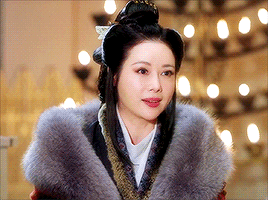
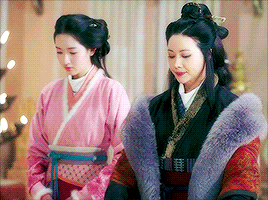
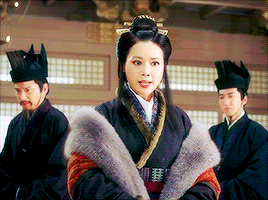
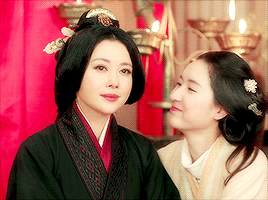
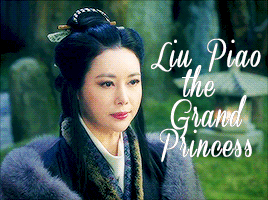
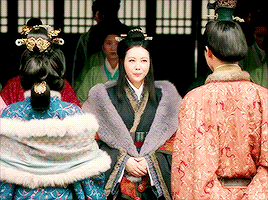
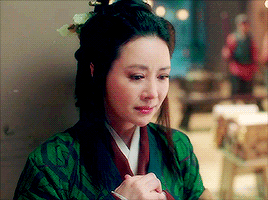
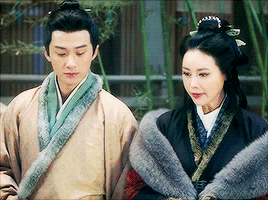
HISTORY MEME (1/5): HAN | TANG | SONG | MING | QING | Liu Piao, Princess of Guantao, also known as Grand Princess Dou
Liu Piao, the Grand Princess (Zhang Gongzhu Piao), c. 190–? 130/ 120 B.C.E., was born in what is now Yanmen Pass in Shanxi Province. She was the eldest daughter of Liu Heng and his concubine Lady Dou (later to become Empress Dou). She was also the older sister of Liu Qi (Emperor Jing, 188– 141 B.C.E.; r. 156– 141 B.C.E.). She was granted the title Princess of Guantao when her father became emperor, and after marrying Chen Wu, a grandson of Chen Ying, Marquis of Tangyi, she gave birth to a daughter whom they named Chen Jiao.
During the reign of her brother, Liu Piao was free to come and go in the court. Her beloved daughter Chen Jiao (whose nickname was Ajiao) therefore grew up in the rear palaces with her maternal cousin Liu Che (Emperor Wu, 156– 87 B.C.E.; r. 140– 87 B.C.E.). Liu Piao paid a great deal of attention to Liu Che, who was granted the title Prince of Jiaodong when he was four years old. One day in his residence she sat him on her lap and, pointing to his maids, asked him if he wanted a beautiful wife. None of the maids pleased the boy, but when Liu Piao pointed to Chen Jiao and asked the same question he replied with delight: “If I could have Ajiao as my wife I would build a house of gold for her!” However, Liu Piao was ambitious and when another of the emperor’s sons, Liu Rong, was appointed heir apparent she approached his mother, Concubine Li (Xiao Jing Li Ji), proposing a marriage between their children. To Liu Piao’s great surprise, Concubine Li rejected her proposal, leading her to put the marriage proposal to Consort Wang, the mother of Liu Che, who accepted immediately on her son’s behalf.
Liu Che ascended the throne when he was sixteen years old and appointed Chen Jiao his empress. After ten years of marriage, however, she had not borne him any children; she was also overbearing and jealous, while her mother, Liu Piao, had become exceedingly greedy. The emperor grew disgusted with both of them and transferred his affections to Wei Zifu, who had been brought into the palace on the recommendation of his eldest sister, the Princess of Pingyang. Empress Chen attempted suicide to regain the emperor’s favor and resorted to sorcery and incantations, performed by a witch named Chu Fu. When these activities were brought to light Chu Fu and some 300 others were put to death, while Empress Chen was deposed and sent to live in Changmen Palace. Undaunted, Liu Piao complained to the Princess of Pingyang about the emperor’s ungratefulness in abandoning his empress, claiming that he would not have become emperor without Liu Piao’s help. While the princess explained that Empress Chen had been deposed simply because she had not produced any children, the emperor argued that he had been unable to do otherwise, since “the empress engaged in unlawful activities.” Though Empress Chen had been deposed, he told Liu Piao, she was living in great comfort in Changmen Palace. This effectively silenced Liu Piao, who could do no more for her daughter.
Source: Lee, Lily Xiao Hong; Stefanowska, A.D.; Wiles, Sue. Biographical Dictionary of Chinese Women: Antiquity Through Sui, 1600 B.C.E. - 618 C.E (University of Hong Kong Libraries Publications)
#historyedit#women in history#perioddramaedit#asiandramanet#cdramaedit#cdramanet#cdramagifs#chineseartistsinc#liu piao princess of guantao#grand princess dou#刘嫖#han dynasty#western han dynasty#ancient history#*mine#*historymeme#she's so interesting imho#she was the first grand princess of the han dynasty#it's incredible that even after chen jiao was deposed she had so much influence#like the emperor organized banquets for her and visited her at her residence#I am hoping to update this every one or two weeks but we shall see#next up is tang#I wanted to include yuan dynasty in this meme but I don't know a lot about it
123 notes
·
View notes
Text
(updated [2])
I started thinking about the casting of live action Heaven's Official Blessing and here's my two cents (based solely off all the shows I've seen):
Xie Lian: Ji Li/Zhu Zanjin
Hua Cheng: Song Jiyang
Feng Xin: Wang Yizhou
Mu Qing: Wang Zhuocheng
Shi Qingxuan: Zhang Zhehan
Shi Wudu: Hu Ge
Pei Ming: Zhang Ruoyun
He Xuan: Wang Yibo (I can't get the visual out of my head)
Qi Rong: Jin Dong (I love this man's range! I *have* to see him play Qi Rong!)
Yin Yu: Xiao Zhan
Qian YiZhen: Gong Jun (he has that natural innocence needed for YiZhen)
Lang Qianqiu: Yu Heng
Jun Wu: Liu HaiKuan
Yushi Huang: Liu Tao
Ling Wen: Wang Ziwen
Xuanji: Angel Ou
Banyue: Shu-yao Kuo
7 notes
·
View notes
Text
Annals of Taihe 20 (496)
[From WS007. The Emperor changes his family name. The Empress is deposed. The Heir is deposed and reduced to commoner status. Mu Tai plans rebellion.]
20th Year, Spring, 1st Month, dingmao [2 February], decreed to change the family name to Yuan.
On renchen [27 February], changed the fief of the King of Shiping, Xie, to be King of Pengcheng. Used the King of Dingxiang county, Luan, to restore his fief to King of Chengyang.
2nd Month, xinchou [7 March], the Emperor favoured Hualin [the “Illustrious Forest”], and listened to disputes at the Chief Watchtower.
On renyin [8 March], decreed that since there were no metal and leather [i.e. weapons and armour → warfare], to allow the full three years of mourning.
On bingwu [12 March], decreed that within the imperial demesne, those seventy and above in late spring were to go to the Imperial City, where [the Emperor] wanted to act out the rites of nourshing the elderly.
On gengxu [16 March], favoured Hualin, and listened to disputes at the Chief Watchtower.
On guichou [19 March], decreed that the towns of Jie Mountian were allowed to make cold food, the remainder were forbidden and were to put a stop to it.
3rd Month, bingyin [1 April], banqueted the crowd of subjects and the elderly of the state and the elderly of the myriads at Hualin Park. A decree said:
For the elderly of state, the yellow-haired and wrinkled and above, [will be] provisional Central Unassigned Grandees and commandery Wardens; the aged and above [will be] provisional Serving Affairs-at-Centre and county Prefects. The elderly of the myriads will just be provisional commander and county [Wardens and Prefects]. On each bestow dove-shaped canes, clothes and garments.
On dingchou [12 April], decreed that the Central Correctors of the various provinces were each to lift up their district's commoners' hopefuls. Those aged fifty and above who guarded simplicity [at their] their crossbeam gates, were to conferred on as Prefects and Chiefs.
Summer, 4th Month, jiachen [9 May], the Inspector of Guang province, Xue Fahu, went south in rebellion.
5th Month, bingzi [10 June], a decree said:
Agriculture in particular is at the head of government, and the altars of grain indeed are the priority of the people. Timely rain abundant and widespread is what ought to genuinely be striven for. Should order within the imperial demesne to strictly apply teaching and supervision. Those who are indolent with their patrimony to be restrained with scouring and flogging. Those who put their strength in farming to be drawn up so their names are known.
On bingxu [20 June], began to lay out the Square Meadow at Heyin.
Dispatched envoys to use the grand sacrificial animals to worship at the mounds of Emperors Guangwu, Ming, and Zhang of Han. Also decreed that for the mounds of the various emperors of Han, Wei, and Jin, each would have a restricted area of a hundred paces where [people] did not get to gather wood or herbs, tread or walk.
On dinghai [21 June], the Chariot Drove to have affairs at the Square Meadow.
7th Month [26 July – 24 August], deposed the August Empress, Ms. Feng.
On wuyin [11 August], the Emperor, due to the long drought, altogether put in order the crowd of gods. From guiwei [16 August], he did not eat until yiyou [18 August]. That night there was timely rain, great and widespread.
On dinghai [20 August], a decree said:
Blazing heat contravening moderation, autumn drizzle rolling up timely rain, the responsibility is with Me, who it truth is deeply trembling with fear. For that reason stopped ordering meals for three mornings, so as to instruct high complaints. The numinous discerned the sincere earnestness, and specially let flow the clouds' liquid.
Even when resting, never rest, but instead dare to overstep idleness. There might be worthy people with profound virtue, exalted scholars stuck on their perches, and though applying measuring and selection, [we] are not able to summon them to come. Should focus on inquiring into the secluded valleys, lift up now these worthy intellects, to straight-away speak the utmost admonitions, and correct what I do not attain.
Also when pernicious flattery damage the court, it certainly will only govern vermin; when greedy men pilfer positions, the great government will then be deficient. The master criticizes and reproaches the incompetent, clarifies and demotes [those] with illicit beneficence.
Also when laws are the core of government, the people's fate is particularly heavy. For the prisoners that are in the Capital, comprehensively instruct itemize them in memorials. We want to personally rely on them for timely discussion and judgement.
Also illness and hardship's six extremities are what people and gods have sympathy for. [We] ought to timely inquire into and care [for them], so as to help the poor and discarded. For the widowed, orphaned, hard-pressed and bereft, and those who are not able survive by themselves, clarify applying sympathy and care, and cause them to obtain aid to survive.
Also to make light conscription and diminish taxes is a lordly person's regular arrangement. [If] within a year there is persistent service, draw it up so that the circumstances are known.
Also the Way of husband and wife is first among the living people. During mid-spring to run and assemble, the rite has an insightful model. For those men and women who have lost the times, use the rite to assemble them.
Also for the Capital's people who have begun the legacy, farming mulberry trees is the foundation. For fields that are sown much or little, teach and supervise so that it is not done, and draw it up so the circumstances are told.
8th Month, renchen, New Moon [25 August], favoured Hualin Park, and personally recorded the prisoners and convicts. For everyone he reduced the original crime with two grades, decided and dispatched them.
On wuxu [31 August], the Chariot Drove to favour Songgao.
On jiayin [16 September], returned to the Palace.
On dingsi [19 September], the King of Nan'an, Zhen, passed away.
Favoured Hualin Park and listened to disputes.
9th Month, wuchen [30 September], the Chariot Drove to review the military at Xiaping Ford.
On guiyou [5 October], returned to the Palace.
On dinghai [19 October], was about to pass along the Luo River to enter the valley. The Emperor personally approached and observed.
Winter, 10th Month, wuxu [30 October], used all of the soldiers who had moved from Dai as Feathered Forest and Rapid-as-Tigers. For the people of Si province, from each twelve men they were to levy one functionary, and be four years replacement soldiers. At the beginning of the year, they would alternate to be on leave, and so provide public and private labour and service.
On jiyou [10 November], a special amnesty for the Imperial City.
11th Month, yiyou [16 December], restored the fief of the former King of Ruyin, Tianci's grandson Jinghe to be King of Ruyin. The former King of Jinzhao, Taixing, became King of Xihe.
Intercalary Month, bingchen [16 January], the General of the Right, Yuan Long, greatly routed the rebellious Hu of Fen province.
12th Month, jiazi [24 January], since the north-western provinces and commanderies had drought and bad harvests, dispatched attendant subjects to inspect and examine, and opened the granaries to relieve and aid.
On yichou [25 January], began with restrictions on salt pools, and gave to people to provide to them.
On bingyin [26 January], deposed the August Heir-Apparent, Xun, to be a commoner.
On dingmao [27 January], announced it to the Grand Temple-
On wuchen [28 January], set up Regular Levelling Granaries.
The Inspector of Heng province, Mu Tai, and others in the province planned rebellion. Dispatched the Acting Master of Writing of the Personnel Section, the King of Rencheng, Cheng, to record and put them in order.
The King Leling, Siyu was convicted of knowing about Tai's secret plans and not reporting it. Stripped off his feudal rank to be a commoner.
5 notes
·
View notes
Text

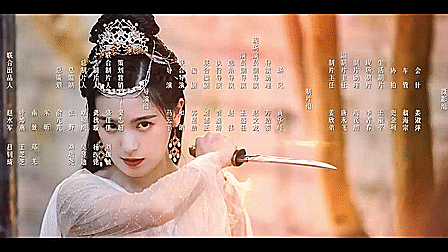

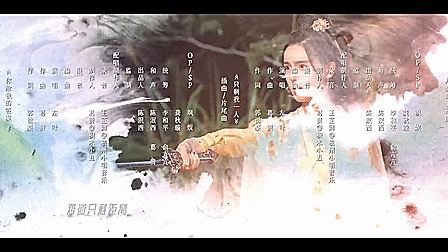
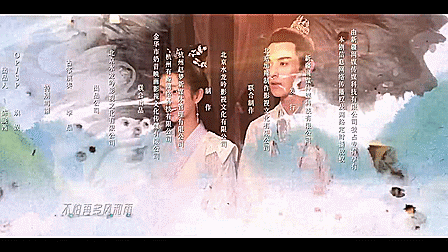
Cdrama: I Don't Want to Be the Princess (2023)
Gifs of Ending of cdrama "I Don't Want to Be the Princess"
[Multi-sub] 《我才不要当王妃》 第1集丨左叶 辛悦 籍皓 方思畅 张恒铭 麦镇豪 吕炫乐 柯博伦 I Don't Want to Be The Princess EP1 【捷成华视偶像剧场】
Watch this video on Youtube: https://www.youtube.com/watch?v=4JXl8x-ijro
#I Don't Want to Be the Princess#我才不要当王妃#Wo Cai Bu Yao Dang Wang Fei#Wang Fei Ni Wang Na Li Pao#王妃你往哪里跑#我才不要當王妃#王妃你往哪裡跑#2023#Youku#youtube#cdrama#chinese drama#episode 1#1st episode#Zuo Ye#Fang Si Chang#Xin Yue#Ji Hao#Zhang Heng Ming#Fresh Drama#Short Length Series#Web Series
4 notes
·
View notes
Text
Biography of Yang Jun (Book of Jin 40)
楊駿,字文長,弘農華陰人也。少以王官為高陸令,驍騎、鎮軍二府司馬。後以后父超居重位,自鎮軍將軍遷車騎將軍,封臨晉侯。識者議之曰:「夫封建諸侯,所以籓屏王室也。后妃,所以供粢盛,弘內教也。后父始封而以臨晉為侯,兆於亂矣。」尚書褚䂮、郭奕並表駿小器,不可以任社稷之重。武帝不從。帝自太康以後,天下無事,不復留心萬機,惟耽酒色,始寵后黨,請謁公行。而駿及珧、濟勢傾天下,時人有「三楊」之號。
Yang Jun, styled Wenchang, was a native of Huayin county in Hongnong commandary. As a young man, he served in the local princely fief first as Prefect of Gaolu, then as Marshal on the staff of the General of Agile Cavalry and the General Who Guards The Army. Later, after his daughter was chosen to be the new Empress, he suddenly occupied a much higher position, and was transferred from General Who Guards The Army to General of Chariots and Cavalry. He was also appointed as Marquis of Linjin.
Those who understood the implications of such things told one another, "The purpose of establishing feudal lords is to have them serve on the borders as shields for the royal household, while the Empress should remain within the capital in order to provide for the sacrifices and expand inner learning. Yet the Empress's father has just been appointed as a Marquis with Linjin as his fief. This is an omen of turmoil."
Two of the Masters of Writing, Chu Lüe and Guo Yi, both petitioned that Yang Jun was a man of meager talents, and could not be entrusted with important matters of state. Emperor Wu ignored them.
Beginning with the Taikang reign era (280), since (after the conquest of Wu) there were no longer any pressing issues in the realm, Emperor Wu no longer concerned himself with the duties of rulership. He only indulged himself in wine and sensual pleasures. At this time, he began to favor the partisans of the Empress, who openly came to visit him and make requests. Yang Jun, Yang Yao, and Yang Ji wielded great influence over the realm, and the people of that time called them the Three Yangs.
及帝疾篤,未有顧命,佐命功臣,皆已沒矣,朝臣惶惑,計無所從。而駿盡斥群公,親侍左右。因輒改易公卿,樹其心腹。會帝小間,見所用者非,乃正色謂駿曰:「何得便爾!」乃詔中書,以汝南王亮與駿夾輔王室。駿恐失權寵,從中書借詔觀之,得便藏匿。中書監華廙恐懼,自往索之,終不肯與。信宿之間,上疾遂篤,后乃奏帝以駿輔政,帝頷之。便召中書監華暠、令何劭,口宣帝旨使作遺詔,曰:「昔伊望作佐,勳垂不朽;周霍拜命,名冠往代。侍中、車騎將軍、行太子太保,領前將軍楊駿,經德履吉,鑒識明遠,毗翼二宮,忠肅茂著,宜正位上臺,擬跡阿衡。其以駿為太尉、太子太傅、假節、都督中外諸軍事,侍中、錄尚書、領前將軍如故。置參軍六人、步兵三千人、騎千人,移止前衛將軍珧故府。若止宿殿中宜有翼衛,其差左右衛三部司馬各二十人、殿中都尉司馬十人給駿,令得持兵仗出入。」詔成,后對暠、劭以呈帝,帝親視而無言。自是二日而崩,駿遂當寄託之重,居太極殿。梓宮將殯,六宮出辭,而駿不下殿,以武賁百人自衛。不恭之跡,自此而始。
Emperor Wu became critically ill, but he had not yet drawn up a last will. Most of his veteran and accomplished ministers had already passed away, and the court ministers were fearful and uncertain, for they had no plan to follow. Yang Jun ousted all of the chief ministers from the bedside and replaced them with his own underlings. Indeed, he replaced and changed all of the nobles and chief ministers with his own associates. At that time, Emperor Wu's illness somewhat abated so that he regained lucidity, and when he saw that his original appointees had been pushed out, he sternly said to Yang Jun, "How has this come about?"
Emperor Wu then ordered the Palace Secretariat to compose an edict appointing the Prince of Runan, Sima Liang, as a co-regent to serve alongside Yang Jun in support of the royal household. But Yang Jun was afraid that this would mean he would lose his current favor and influence. So he went to the Palace Secretariat and borrowed the draft edict in order to look at it, then hid it away somewhere. The Chief of the Palace Secretariat, Hua Yi, was concerned, and he continually demanded Yang Jun return the edict, but to no avail. Then word arrived that Emperor Wu had fallen back into senility, and when Empress Yang Zhi presented a petition asking that Yang Jun be made the sole regent, Emperor Wu nodded in approval.
Yang Zhi then summoned Hua Yi and the Prefect of the Palace Secretariat, He Shao, and verbally told them that Emperor Wu had ordered them to compose a will, stating:
"In ancient times, Yi Yin and Lü Wang (Jiang Ziya) served to support the state, and their diligence has provided an immortal example; the Duke of Zhou and Huo Guang heeded the command to preside over the court, and their reputation has shone through the ages. Now the Palace Attendant, General of Chariots and Cavalry, acting Grand Guardian to the Crown Prince, and acting General of the Front, Yang Jun, has cultivated virtue and walked the path of good fortune. He is discerning, intelligent, wise, and far-seeing, and he has done much to assist the two palaces (of the Emperor and the Crown Prince). He is highly loyal, most respectful. He ought to occupy the chief position and preside over the government, following the same precedent as A-Heng (Yi Yin).
“Thus I hereby appoint Yang Jun as Grand Commandant, Grand Tutor to the Crown Prince, Credential Holder, and Commander of all military affairs; he will keep his existing positions as Palace Attendant, chief of affairs of the Masters of Writing, and acting General of the Front. I also appoint six Army Advisors, three thousand infantry, and a thousand cavalry to be assigned to him, drawn from the staff of the former Guard General, Yang Yao. If any assistance is needed from the palace guards, then twenty people from each of the Guard Commanders shall be assigned to Yang Jun, along with ten people from the Marshals of the Palace Commandant. Yang Jun is empowered to go in and out with weapons at hand."
When the edict had been completed, Yang Zhi had Hua Yi and He Shao present it to Emperor Wu, who looked at it without saying a word.
Two days afterwards, Emperor Wu passed away.
Yang Jun now claimed his new role as regent, and he moved his residence to the Taiji Hall. Emperor Wu's coffin was then placed in the mourning hall, and the people of the six palaces all came to pay their respects. However, Yang Jun did not leave the Taiji Hall, and he had a hundred of the Guards Rapid As Tigers assigned to protect him. This was the beginning of his lack of respect.
惠帝即位,進駿為太傅、大都督、假黃鉞,錄朝政,百官總己。慮左右間己,乃以其甥段廣、張劭為近侍之職。凡有詔命,帝省訖,入呈太后,然後乃出。駿知賈后情性難制,甚畏憚之。又多樹親黨,皆領禁兵。於是公室怨望,天下憤然矣。駿弟珧、濟並有俊才,數相諫止,駿不能用,因廢於家。駿暗于古義,動違舊典。武帝崩未逾年而改元,議者咸以為違《春秋》逾年書即位之義。朝廷惜於前失,令史官沒之,故明年正月復改年焉。
Emperor Hui having risen to the throne, Yang Jun was promoted to Grand Tutor, Grand Commander, and Bearer of the Yellow Battle-axe. He was placed in charge of the court and the government, and all the ministers had to heed his commands.
Concerned that the people around him might not support him, Yang Jun had his nephews Duan Guang and Zhang Shao appointed to close positions. And whenever an edict was to be sent out, once Emperor Hui had completed the draft, it would first have to be presented to the Empress Dowager, Yang Zhi, for her approval, and only then would it be carried out.
Yang Jun knew that the new Empress, Jia Nanfeng, would be difficult to control, and he greatly feared and dreaded her. So he placed many of his associates and partisans in control of the palace guards.
The noble families were stirred to anger against Yang Jun, and all the realm was indignant at him. His younger brothers Yang Yao and Yang Ji were both men of talent, and they often remonstrated with him together. But Yang Jun could not use their advice, and thus he brought his family to ruin in the end.
Yang Jun was blind to ancient traditions, and he frequently violated the established canons. He did not observe the usual practice of waiting until the beginning of the following year to begin a new reign era, but immediately ended the current one and began a new one in the middle of the year. People objected that this violated one of the principles of the Spring and Autumn Annals, according to which the final year of the reign era of a newly-deceased sovereign should be allowed to run its full course before the new reign era was declared at the beginning of the following year. The court ministers regretted the prospect of abandoning this precedent, nor would the Astrologists Bureau accept it. Thus, in the first month of the following year, the reign era title was changed once again.
駿自知素無美望,懼不能輯和遠近,乃依魏明帝即位故事,遂大開封賞,欲以悅眾,為政嚴碎,愎諫自用,不允眾心。馮翊太守孫楚素與駿厚,說之曰:「公以外戚,居伊霍之重,握大權,輔弱主。當仰思古人至公至誠謙順之道。于周則周召為宰,在漢則朱虛、東牟,未有庶姓專朝,而克終慶祚者也。今宗室親重,籓王方壯,而公不與共參萬機,內懷猜忌,外樹私昵,禍至無日矣。」駿不能從。
Since Yang Jun himself knew that he had little support or favor and was afraid that he would not be able to ensure the obedience of those near and far, he followed the example of Emperor Ming of Cao-Wei (Cao Rui) when he had come to the throne by greatly distributed titles and rewards, hoping to thus please others. But Yang Jun ruled sternly and followed only his own counsel while ignoring criticism, so he did not satisfy the hearts of the people.
The Administrator of Pingyi, Sun Chu, had long enjoyed Yang Jun's favor. He now advised Yang Jun, "You are someone who is only related to the imperial family by marriage, yet you now occupy the same regency role as Yi Yin or Huo Guang; you wield great influence, and you oversee a tender ruler. In your conduct of affairs, you ought to consider the actions of the ancients, and you ought to make every effort to act justly, honestly, and with humble submission. Remember that during the Zhou dynasty, the Dukes of Zhou and Shao acted to support their king, while during the Han dynasty, the Marquises of Zhuxu and Dongmou (Liu Zhang and Liu Xingju) helped to purge the clan of Empress Dowager Lü. There has never yet been an instance where someone of a different surname from the royal family wielded control over the court and still met a good end. In our own time, the imperial clan is great and powerful and the princes each have their strong garrisons on the borders, yet you do not solicit their help in attending to the affairs of state. Those within harbor doubts and suspicion about you, and those without are all considering their own personal interests. Disaster is not far off."
But Yang Jun could not follow his advice.
殿中中郎孟觀、李肇,素不為駿所禮,陰構駿將圖社稷。賈后欲預政事,而憚駿未得逞其所欲,又不肯以婦道事皇太后。黃門董猛,始自帝之為太子即為寺人監,在東宮給事于賈后。後密通消息於猛,謀���太后。猛乃與肇、觀潛相結托。賈后又令肇報大司馬、汝南王亮,使連兵討駿。亮曰:「駿之凶暴,死亡無日,不足憂也。」肇報楚王瑋,瑋然之。於是求入朝,駿素憚瑋,先欲召入,防其為變,因遂聽之。
Two of the Palace Gentlemen of the Central Hall, Meng Guan and Li Zhao, had both long been disrespected by Yang Jun, and they secretly criticized him, saying that he was going to usurp the state. Jia Nanfeng for her part wished to exercise control over the government as well, but she feared that Yang Jun would never allow her to do as she wished, and she could not bear being inferior in womanly affairs to the Empress Dowager, Yang Zhi. And one of the Yellow Gate Attendants, Dong Meng, had originally served Emperor Hui during his time as Crown Prince as Chief of the Ministry Men and had kept Jia Nanfeng informed of what was happening in the Eastern Palace. So Jia Nanfeng now secretly sent word to Dong Meng, plotting to depose the Empress Dowager. Dong Meng, Meng Guan, and Li Zhao secretly planned to support one another.
Jia Nanfeng also ordered Li Zhao to pay a visit to the Grand Marshal and Prince of Runan, Sima Liang, and have him bring his troops to move against Yang Jun. But Sima Liang told him, "Yang Jun is a wicked and violent man, and his downfall and death are only a matter of time. He is not worth worrying about."
Then Li Zhao went to see the Prince of Chu, Sima Wei, and Sima Wei agreed to help with the plot. Sima Wei then sent a request to the capital asking to serve on the court (which would cause him to give up his military authority at his fief). Yang Jun had long feared Sima Wei, and he had originally even wanted to summon Sima Wei to the capital as well, to prevent Sima Wei from causing any mischief from his border post. So when Sima Wei himself submitted his request to come to court, Yang Jun allowed him to do so.
及瑋至,觀、肇乃啟帝,夜作詔,中外戒嚴,遣使奉詔廢駿,以侯就第。東安公繇率殿中四百人隨其後以討駿。段廣跪而言於帝曰:「楊駿受恩先帝,竭心輔政。且孤公無子,豈有反理?願陛下審之。」帝不答。
After Sima Wei arrived in the capital, Meng Guan and Li Zhao informed Emperor Hui of the plot. That night, they composed an edict. Everywhere was placed under martial law, while agents were sent to present an edict with orders to depose Yang Jun and force him to his Marquisate estate. The Duke of Dong'an, Sima Yao, was ordered to lead four hundred men from the imperial guards to accompany the agents and attack Yang Jun.
Duan Guang knelt before Emperor Hui and said, "Yang Jun received the grace of His Late Majesty (Emperor Wu), and he is fully devoted to supporting the government. Besides, he is a widower without any sons; how could he have any reason to rebel? Your Majesty, please reconsider."
But Emperor Hui did not respond to him.
時駿居曹爽故府,在武庫南,聞內有變,召眾官議之。太傅主簿朱振說駿曰:「今內有變,其趣可知,必是閹豎為賈后設謀,不利於公。宜燒雲龍門以示威,索造事都首,開萬春門,引東宮及外營兵,公自擁翼皇太子,入宮取奸人。殿內震懼,必斬送之,可以免難。」駿素怯懦,不決,乃曰:「魏明帝造此大功,奈何燒之!」侍中傅祗夜白駿,請與武茂俱入雲龍門觀察事勢。祗因謂群僚「宮中不宜空」,便起揖,於是皆走。
At this time, Yang Jun was living in Cao Shuang's former residence, south of the Arsenal. When he heard that there was some disturbance in the city, he summoned his officials to discuss what to do.
His Registrar as Grand Tutor, Zhu Zhen, urged him, "We may know who the source is of this current disturbance; it is certainly those loathsome eunuchs carrying out Empress Jia's plot, and it cannot mean anything good for you. You should set fire to the Yunlong Gate as a show of strength. Then once your affairs are in order, you may force open the Wanchun Gate, send in the soldiers of the Eastern Palace and the outer camps while you secure the Crown Prince, and march into the palace and arrest the culprits. Anyone inside the palace halls who is trembling with fear should be killed and thus sent off. If you do these things, you can escape from danger."
But Yang Jun had long been timid and apprehensive, and he could not make up his mind. He even said, "The Yunlong Gate was a great achievement of Emperor Ming of Wei (Cao Rui); how could we burn it down?"
One of the Palace Attendants, Fu Zhi, reported to Yang Jun during the night, and asked that he and Wu Mao go through the Yunlong Gate to observe the situation and see how things were progressing. He then said to the other officials, "The palace should not be left empty." Fu Zhi then got up and saluted, and the officials all fled.
尋而殿中兵出,燒駿府,又令弩士於閣上臨駿府而射之,駿兵皆不得出。駿逃於馬廄,以戟殺之。觀等受賈后密旨,誅駿親黨,皆夷三族,死者數千人。又令李肇焚駿家私書,賈后不欲令武帝顧命手詔聞于四海也。駿既誅,莫敢收者,惟太傅舍人巴西閻纂殯斂之。
Soon, the palace guards marched out and set fire to Yang Jun's residence. Crossbowmen were also posted atop a pavilion near the residence, where they began shooting at it, so that Yang Jun's soldiers could not get out. Yang Jun fled to a stable, but was then killed by a halberd.
Then, heeding Jia Nanfeng's secret orders, Meng Guan and the others executed all of Yang Jun's associates and partisans as well. All of them had their clans exterminated to the third degree, and the dead numbered several thousand. They also ordered Li Zhao to burn Yang Jun's private correspondence as well, for Jia Nanfeng did not want the will that Emperor Wu had written (which Yang Jun had then taken) to be generally known among the realm either.
After Yang Jun was executed, no one dared to come and claim his body. Only one of his retainers as Grand Tutor, Yan Zuan of Baxi commandary, prepared a coffin and held a service for him.
初,駿徵高士孫登,遺以布被。登截被於門,大呼曰:「斫斫刺刺!」旬日託疾詐死,及是,其言果驗。永熙中,溫縣有人如狂,造書曰:「光光文長,大戟為牆。毒藥雖行,戟還自傷。」及駿居內府,以戟為衛焉。
Earlier, Yang Jun had tried to recruit the hermit Sun Deng, and he sent him a gift of clothing and a quilt. But Sun Deng ripped apart the quilt at his doorway, greatly sighing, "Hacked and torn, hacked and torn!" And for several days he claimed to be ill and pretended to have passed away. At this time, his prediction proved correct.
During the Yongxi reign era (290), there was a supposed madman in Wen county who wrote a message stating, "Glory Wenchang shall know well, great halberds on his walls shall dwell. But medicine can poison too; this halberd's blade shall turn on you." And indeed, Yang Jun had kept halberds in his residence for defense (and in the end was killed by a halberd).
永甯初,詔曰:「舅氏失道,宗族隕墜,渭陽之思,孔懷感傷。其以{艸務}亭侯楊超為奉朝請、騎都尉,以慰《蓼莪》之思焉。」
During the Yongning reign era (301), Emperor Hui issued an edict stating, "My uncle (Yang Jun) was without principle and so brought about the fall of his family and his clan. Yet when I think of the Weiyang poem (which laments the loss of a relative), I cannot help but be moved by grief. I hereby appoint the Marquis of [艸+務] district, Yang Chao, as Honoree of the Court and as a Cavalry Commandant, in order to ease the grief of the loss of family, as expressed by the Liao E poem."
珧字文琚,歷位尚書令、衛將軍。素有名稱,得幸于武帝,時望在駿前。以兄貴盛,知權寵不可居,自乞遜位,前後懇至,終不獲許。初,聘後,珧表曰:「歷觀古今,一族二后,未嘗以全,而受覆宗之��。乞以表事藏之宗廟,若如臣之言,得以免禍。」從之。右軍督趙休上書陳:「王莽五公,兄弟相代。今楊氏三公,並在大位,而天變屢見,臣竊為陛下憂之。」由此珧益懼。固求遜位,聽之,賜錢百萬、絹五千匹。
Yang Yao, styled Wenju, was the younger brother of Yang Jun. He served as Prefect of the Masters of Writing and then as Guard General. He had long enjoyed a good reputation, and he thus won the favor of Emperor Wu. During Emperor Wu's reign, Yang Yao had more influence than Yang Jun.
Once Yang Jun became more exalted and powerful, Yang Yao knew that this greater favor and influence would not last. He wished to resign his own positions, and several times made a request to do so, but Emperor Wu never did agree to let him resign. But earlier, when the betrothal of Yang Jun's daughter Yang Zhi to Sima Zhong (Emperor Hui) had first been arranged, Yang Yao had submitted a petition stating, "From ancient times until now, whenever the same household has provided two empresses, it has never been able to preserve itself; all met with disaster in the end. I beg that you preserve this petition in the ancestral temple, and if my words should prove true, then I may use this petition to avoid disaster." Emperor Wu did agree to this request.
The Commander of the Right, Zhao Xiu, sent up a letter remonstrating against the amount of power the Yang brothers had been allowed to wield, stating, "Remember that (the usurper) Wang Mang and his four brothers all held powerful roles. Now in our own time, the three Yao brothers each have great offices. Furthermore, there have been several sightings of disturbances in the heavens. I humbly implore Your Majesty to consider this."
Yang Yao was now even more afraid, and he insisted on being allowed to resign. Emperor Wu at last heeded him, and he gave him gifts of a million gold and five thousand bolts of fine silk.
珧初以退讓稱,晚乃合朋黨,構出齊王攸。中護軍羊琇與北軍中侯成粲謀欲因見珧而手刃之。珧知而辭疾不出。諷有司奏琇,轉為太僕。自是舉朝莫敢枝梧,而素論盡矣。
At first, Yang Yao received praise for yielding his offices and retiring. But later, he got together with his friends and partisans and agitated to have the Prince of Qi, Sima You, sent away. The General Who Guards The Army of the Center, Yang Xiu, and the Palace Marquis of the Northern Army, Cheng Can, plotted to go see Yang Yao, holding blades in their hands to kill him. Yang Yao knew about it, and he claimed illness and would not come out. He arranged for the officials to censure Yang Xiu, and Yang Xiu was transferred to be Minister Coachman. But from then on, during court meetings, Yang Yao never dared to prevaricate, but always spoke his full mind.
珧臨刑稱冤,云:「事在石函,可問張華。」當時皆謂宜為申理,合依鐘毓事例。而賈氏族党待諸楊如仇,促行刑者遂斬之。時人莫不嗟歎焉。
As Yang Yao was about to be executed, he pleaded that he was innocent, and said, "I have a petition encased in stone pardoning me. Ask Zhang Hua about it." And everyone at that time said that Yang Yao had indeed warned about the danger posed by his brother Yang Jun, and had thus been following the same example as Zhong Hui's brother Zhong Yu once had. But the members and partisans of the Jia clan held a grudge against the whole Yang clan, and they compelled the executioner to behead him anyway. There was no one at that time who did not sigh in sympathy for Yang Yao's fate.
濟字文通,歷位鎮南、征北將軍,遷太子太傅。濟有才藝,嘗從武帝校獵北芒下,與侍中王濟俱著布袴褶,騎馬執角弓在輦前。猛獸突出,帝命王濟射之,應弦而倒。須臾復一出,濟受詔又射殺之,六軍大叫稱快。帝重兵官,多授貴戚清望,濟以武藝號為稱職。與兄珧深慮盛滿,乃與諸甥李斌等共切諫。駿斥出王佑為河東太守,建立皇儲,皆濟謀也。
Yang Ji, styled Wentong, was the younger brother of Yang Jun and Yang Yao. He served successively as General Who Guards The South and General Who Conquers The North, and he was then transferred to be Grand Tutor to the Crown Prince.
Yang Ji had talent and skill. He once accompanied Emperor Wu on a hunt beneath the Beimang Hills (north of Luoyang), where he and one of the Palace Attendants, Wang Ji, both wore special attire as they rode horses and wielded bows, riding in front of Emperor Wu's carriage. A fierce beast suddenly appeared, and Emperor Wu ordered Wang Ji to shoot it; the beast fell with the twang of Wang Ji's bowstring. Soon, another beast emerged. Emperor Wu now ordered Yang Ji to shoot, and he too felled the beast. The soldiers of the six armies hailed them both with a great shout.
In many cases, Emperor Wu appointed those of honorable family and great influence to the most important military positions. Yang Ji received acclaim and appointment due to his martial skills.
Yang Ji and his brother Yang Yao were both quite worried about their positions, so they joined with their uncles, Li Bin and others, to harshly remonstrate together. It was thanks to Yang Ji's proposals that Yang Jun had Wang You denounced and sent away to serve as Administrator of Hedong, and that the imperial heir was established.
初,駿忌大司馬汝南王亮,催使之籓。濟與斌數諫止之,駿遂疏濟。濟謂傅咸曰:「若家兄徵大司馬入,退身避之,門戶可得免耳。不爾,行當赤族。」咸曰:「但徵還,共崇至公,便立太平,無為避也。夫人臣不可有專,豈獨外戚!今宗室疏,因外戚之親以得安,外戚危,倚宗室之重以為援,所謂脣齒相依,計之善者。」濟益懼而問石崇曰:「人心云何?」崇曰:「賢兄執政,疏外宗室,宜與四海共之。」濟曰:「見兄,可及此。」崇見駿,及焉,駿不納。後與諸兄俱見害。難發之夕,東宮召濟。濟謂裴楷曰:「吾將何之?」楷曰:「子為保傅,當至東宮。」濟好施,久典兵馬,所從四百餘人皆秦中壯士,射則命中,皆欲救濟。濟已入宮,莫不歎恨。
Earlier, Yang Jun had been suspicious of the Grand Marshal and Prince of Runan, Sima Liang, and had compelled him to return to his fief (at Xuchang). Yang Ji and Li Bin remonstrated against this several times, trying to get Yang Jun to drop the idea, but this only alienated him from them.
Yang Ji said to Fu Xian, "If only my elder brother could merely recall the Grand Marshal to the capital while personally steering clear of him, then the status of our family could be secured. Otherwise, it will be a red end for us."
Fu Xian told him, "So long as you summoned the Grand Marshal to come back, and could act in joint regency together with him, then that would lead to a general peace, and there would not even be any need for your elder brother to withdraw. The issue is merely that no one minister should amass all power for themselves, much less a marital relative of the royal family! Now the members of the imperial clan are distant because the associates of your own clan are secure in their positions. But should your family be threatened, you ought to be able to count upon the support of the imperial clan, like the lips protect the teeth. That would be a good plan."
Yang Ji was now even more afraid, and he asked Shi Chong, "What are people really saying about us?"
Shi Chong replied, "Your worthy elder brother is grasping the reins of power, while keeping the imperial clan at a distance. He ought to share his power with all within the Four Seas."
Yang Ji said, "Go and see my brother, and try to persuade him of this."
So Shi Chong went to see Yang Jun and conveyed his advice, but Yang Jun did not listen.
Yang Ji was later killed with his elder brothers.
On the morning of his final day, Yang Ji was summoned to the Eastern Palace. Yang Ji asked Pei Kai, "What should I do?"
Pei Kai replied, "As you are the Grand Guardian and Grand Tutor for the Crown Prince, you ought to report to the Eastern Palace."
Yang Ji had enjoyed hunting, and he had commanded infantry and cavalry for a long time, so he had more than four hundred strong fellows from the Qin region among his retainers, all crack shots. They all wished to save Yang Ji's life. But by then, Yang Ji had already entered the palace. They all sighed in regret for his fate.
10 notes
·
View notes
Text
Shenzhen Building News, Guangdong Architecture
Shenzhen Architecture News, Guangdong Building Designs, Architects, Chinese Property Photos
Shenzhen Building News
Contemporary Chinese Architecture Developments: Guangdong Province Built Environment Updates
post updated 6 Sep 2020
Shenzhen Architecture News
Shenzhen Architectural News, chronological:
Shenzhen Architecture Designs – chronological list
28 Aug 2020
Prince Plaza, Shekou District
Design: OMA / David Gianotten
photograph © Seth Powers, courtesy of OMA
Morden Wharf Greenwich Peninsula
Prince Plaza was commissioned by CMSK (China Merchants Shekou Holdings). The mixed-use podium tower is located at Shekou’s most prominent view corridor linking the Nanshan mountains and the Shenzhen Bay.
26 Aug 2020
SUSTech School of Medicine & Hospital – Tender
25 Aug 2020
Shenzhen Fuwai Hospital Phase III
7 August 2020
SHUIBEI International Centre Building, Luohu
Architects: Aedas
photo : CreatAR Images
SHUIBEI International Centre Building Design
Shaping the city’s skyline with contemporary urban renewal developments, he states that, “Urban regeneration is not simply replacing old and weathered buildings with new ones, but rather building a new relationship and a deeper connection between the city and its people through these new developments. This connection requires more than just space as it also integrates everyday organic synergy from the community.”
13 May 2020
China Resources’ MixC Market Hall
Architects: 10 DESIGN
image courtesy of architects office
China Resources’ MixC Market Hall
Sungang MixC Market Hall, China Resources’ new mixed-use development is under construction in Shenzhen, China with anticipated completion by Q3 2022. Located on a former industrial zone, this retail-gastronomy destination will provide an immersive gastronomic experience under one roof.
18 Feb 2020
C Future City Experience Center, Shangsha
Architects: CCD/ Cheng Chung Design (HK)
image courtesy of architects office
C Future City Experience Center
Shangsha used to be a coastal fishing village, which has developed along with the renewal of the city, while now it is witnessing the rising of C Future City. Through reflecting on the values that rooted in the village, CCD finally decided to take “marks of the fishing village” as the starting point for the design.
10 Feb 2020
Qianhai Talents’ Apartments
Design: Foster + Partners
image © Foster + Partners
Qianhai Talents’ Apartments Shenzhen
An innovative residential project in Shenzhen aimed specifically at the rental market. The project is envisaged as a building exclusively for ‘talents’ – professionals who would have an intensive work-centred lifestyle.
Shenzhen Building News 2019
16 Dec 2019
Ensue Luxury Restaurant, Futian District
Design: Chris Shao Studio LLC
photographer : Common Studio: Lit Ma & Kelly Puleio Studio
Ensue Luxury Restaurant in Shenzhen
Simple and natural elements engage the guest with a new experience of fine dining, by way of redefining a luxurious and opulent experience with a more naturalistic aesthetic that still embodies refined detail.
14 Dec 2019
Huitong Hybrid Tower
Design: Jaeger Kahlen Partners Architects
photographer : 叶文锐 Wenrui Ye
Huitong Hybrid Tower in Shenzhen
A novel idea in skyscraper design: part world-class office space and part high-tech car park. By efficiently and seamlessly integrating parking spaces into the design, JKP increased buildable area under zoning regulations and maximized the value of the project to both the users and the city.
8 Nov 2019
Konka Tower
Architects: Mecanoo
image courtesy of architects
Konka Tower
The city is searching for new models for urban and architectural innovation to replace the traditional model of large-scale indoor shopping malls and focus on flexible development.
21 Sep 2019
MORPH, Nanshan District
Architects: Various Associates
photograph : Shao Feng
MORPH, Nanshan District
Occupying a corner of a building, MORPH is a mixed-use space with a total construction area of 1,000 sqm. With an urban park and Houhai business circle nearby, it’s a rare tranquil place amidst the hustle and bustle of the downtown area.
11 Sep 2019
Typhoon-proof Shenzhen East Coast
16 July 2019
Futian Civic Cultural Centre Building
5 July 2019
Folding Residence, Longgang District
3 July 2019
Sheraton Shenzhen Nanshan, Xili Hotel
18 June 2019
The King’s School Shenzhen International, Nanshan
Architects: Walters & Cohen
image from architects
The King’s School Shenzhen International Building
Located in Nanshan, China, the school offers pupils aged 2 to 18 a combined Chinese and British curriculum, with a greater emphasis on the latter as pupils progress through the school.
8 Jan 2019
Qianhai Data Centre
Architects: Mecanoo
image from architects
Qianhai Data Centre Shenzhen Building
Infrastructural facilities are the functional heart of modern cities. Although usually concealed, these buildings are essential for urban daily life. When visible, they have the capacity of being a symbol of the technological achievements of our time.
More contemporary Shenzhen Building News on e-architect soon
Southern Guangdong Province Architecture Updates 2018
7 Aug 2018
Shenzhen Energy Company Office Skyscraper
Architects: BIG-Bjarke Ingels Group
image : Chao Zhang
Shenzhen Energy Company Office Skyscraper Building
The new home for Shenzhen Energy Company looks different because it performs differently: the building skin is developed to maximize the sustainable performance and workplace comfort in the local subtropical climate of China’s tech and innovation hub.
8 Aug 2018
Sunac – Smart Valley Shenzhen
Architects: BLVD International
image courtesy of architects
Sunac – Smart Valley Shenzhen Building
The overall design intentionally breaks people’s stereotyped perception of the tediousness of science and technology, integrates the ecological concept into the geometry and modernity of technology, and transforms the lines of science and technology into the surface treatment in the real space.
11 Aug 2018
Shenzhen Bay Square Waterfront
Design: MAD Architects
image courtesy of architects
Shenzhen Bay Square Waterfront by MAD Architects
MAD Architects, led by Ma Yansong, win two international competitions – the winning masterplan (36 hectares), and architectural design (15 hectares), will see an ambitious urban development project bring a vibrant cultural complex to the area that connects Shenzhen city to the waterfront, surrounding ecological corridor, and nearby mountain ranges – creating a harmony between humans and nature.
26 Jul 2018
Forest and Sports Park in Guang Ming
Architects: LOLA, TALLER and L+CC
picture courtesy of architects office
Forest and Sports Park in Guang Ming
LOLA, TALLER and L+CC won the international competition for a 600 hectare forest and sports park in Guang Ming, Shenzhen, China. The other competitors were JCFO, SWA and TCL.
10 Jul 2018
Qianhai SZ-HK Fund Town
Architects: Leigh & Orange
photo : Leigh & Orange
Qianhai SZ-HK Fund Town Building
The project is located at the Qianhai district in Shenzhen China. Known as “Qianhai SZ-HK Fund Town”, it consisted of a variety of low-rise building typologies designed to suit different office and commercial uses. These include midrise row-offices, corporate villas, stand-alone retail pavilions and a basement retail street.
7 Jul 2018
Longgang Chuangtou Tower
Architects: URBANUS Architecture & Design
photograph : SHU He
Longgang Chuangtou Tower in Shenzhen Building
The architecture is a container that captures light, just like how a musical instrument captures music. Light needs a structure that can show it. VC&PE has an open spatial structure, is interspersed with deconstructed blocks, and has a rhythmical unit form, which gives light the best expression carrier.
4 Jul 2018
Pingshan Performing Arts Center
Design: OPEN Architecture
photograph : Zhang Chao
Pingshan Performing Arts Center Building
OPEN’s Pingshan Performing Arts Center in Shenzhen has moved another step closer to its expected completion this year. With the building envelope now fully installed, the focus has shifted to the interior fit out and landscape construction phase.
5 Jun 2018
Space in Mutation, Berlin, Germany
Curated by Doreen Heng Liu, NODE Architecture & Urbanism, Shenzhen
Collage Shenzhen © NODE Architecture & Urbanism
Space in Mutation
Opening: Friday, 29 June 2018, 6.30pm
Exhibition: 30 June – 15 August 2018
Location: Aedes Architecture Forum, Christinenstr. 18-19, 10119 Berlin
Opening Hours: Tuesday-Friday 11am-6.30pm, Sunday-Monday 1-5pm
Special Opening Hours: Saturday, 30 June 2018, 1-5pm
Symposium: Friday, 29 June 2018, 4pm
Location: ANCB The Aedes Metropolitan Laboratory, Christinenstr. 18-19, 10119 Berlin
9 May 2018
DJI’s new HQ, Shenzhen, China
Architects: Foster + Partners
image : Foster + Partners
DJI HQ Building News
Foster + Partners today unveiled their vision for the new headquarters for DJI, the world leading robotics company, currently under construction in Shenzhen.
2 May 2018
Shekou Sea World Culture and Arts Center
Architects: Maki and Associates
photo © Shu He
Shekou Sea World Culture and Arts Center
The building highlights openness and connectivity, so that people, space and nature can have quiet dialogues. The lighting coincides with them to hide among buildings and landscapes to give off soundless beauty.
Prince Bay Development
Design:John Portman & Associates
image © John Portman & Associates
Prince Bay Shenzhen Development News
John Portman & Associates is happy to announce a first-place finish in the international design competition held by Shenzhen Prince Bay Shang Long Real Estate Co., LTD for the architectural and engineering design of Prince Bay lot DY02-06A in Shenzhen, China.
23 Apr 2018
ROARINGWILD · UNIWALK Interior
Interior Design: Kingson Liang | DOMANI
photograph © Shaon Liu
Store Interior Shenzhen City
China’s native original Tide brand ROARINGWILD roaring in the 7th year, the brand rooted in Shenzhen which opened the first entity stores. Space designed by DOMANI, consistent of the fierce strokes presented shake the soul of the visual impact and sensory illusion.
20 Apr 2018
Sky Club House
Architects: DOMANI
photograph : Shaon
Sky Club House Shenzhen City
More Shenzhen Architecture Design News online soon
Shenzhen Architecture News
Location: Shenzhen, China
Chinese Buildings
Hong Kong Walking Tours
Hong Kong Skyscrapers
Shenzhen Museum of Contemporary Art & Planning
Shenzhen 4 in 1 Towers
Ensue Restaurant
Chinese Buildings
Comments / photos for the Shenzhen Building Design News page welcome
Website: Architecture
The post Shenzhen Building News, Guangdong Architecture appeared first on e-architect.
1 note
·
View note
Video
Learn Chinese in Chinese stories|Chinese legends|Kuā Fù Zhuī Rì
In Chinese "Yue岳" means mountain . There are five famous mountains in China ,which are located in the north, south, east, west and middle of the land. There are many legends about the origin of the Five Mountains, the most popular is that the Five mountains were the huge stones used by a giant called Kua Fu to put the pot for cooking when he was chasing after the Sun.This video is about the legend ‘ Kuafu Zhui Ri’ and relative Chinese culture.
岳’在中文里是高山的意思,在中国有‘五岳’的说法,他们分别位于中国东西南北中。
关于‘五岳’的由来有很多传说,其中一种说法是这‘五岳’是一个叫夸父的巨人当年追日的时候架锅煮饭用的五块巨石。这个视频是关于‘夸父追日’的故事及汉语文化介绍。
CONTENT
Kuā Fù Zhuī Rì
夸父追日
Kuafu’s chasing after the sun
Yuan gu shi hou ,zai bei fang you zuo gao shan jiao cheng du zai tian shan
远古时候,在北方有座高山叫成都载天山
In ancient times, there was a high mountain in the north of China called Chengdu Zaitianshan
Zai tian shan shen chu sheng huo zhe yi ge ju ren bu luo
载天山深处生活着一个巨人部落
In the deep of Zaitian mountain ,there was a Giant tribe
Ta men de shou ling jiao kua fu
他们的首领名叫做夸父
Their leader was called Kuafu
Kua fu shen qiang li zhuang ,yi zhi jian qiang
夸父身强力壮,意志坚强
Kuafu was powerful and strong - willed
Ta dai ling zhe zu ren guo zhe qin lao de ri zi
他带领着族人过着勤劳的日子
He led his people live a hard life
Na shi da di huang ling ,du wu meng shou heng xing
那时大地荒凉,毒物猛兽横行
Then the land was desolate and infested with poison beasts
Te bie dao le wan shang tai yang xia shan le ,da di chong hui hei an
特别到了晚上太阳下山了,大地重回黑暗
Especially at night when the sun goes down and the earth become dark
Du she meng shou chu lai xi ji ren lei
毒蛇猛兽出来袭击人类
The vipers and beasts attacked humans
Kua fu de bu luo yin ci si le hen duo ren
夸父的部落因此死了很多人
In Kuafu’ tribe, many people lost lives
Kua fu fei chang nan guo
夸父非常难过
Kua fu felt very sad
Ta yao qu zhuo zhu tai yang
他要去捉住太阳
He wanted to catch the Sun
Rang da jia guo shang zhi you guang ming mei you hei an de ri zi
让大家过上只有光明没有黑暗的日子
Let the people live a life with light and without darkness
Yu shi dang tai yang gang gang sheng qi de shi hou
于是当太阳刚刚升起的时候
So when the sun had just risen
\
Kua fu gao bie le zu ren qu zhui gan tai yang
夸父告别了族人去追赶太阳
Kuafu said goodbye to his people and went after the sun
Tai yang zai kong zhong fei kuai de yi dong
太阳在空中飞快地移动
The Sun moved fast in the sky
Kua fu zai di shang pin ming de zhui gan
夸父在地上拼命追赶
Kua fu run after it on the earth at top speed
Ta yve guo yi zuo zuo da shan
他越过一座座大山
He crossed many mountains
Kua guo yi tiao tiao he liu
跨过一条条河流
crossed many mountains
Kun le jiu da ge dun
困了就打个盹
When sleepy just taken a nap
E le jiu chi dian ye guo chong ji
饿了就吃点野果充饥
When hungry just eaten some wide fruits
You shi kua fu ye zhu dian fan
有时夸父也煮点饭
Sometimes Kuafu cooked something
Ju shuo xian zai de wu yve jiu shi kua fan dang nian jia guo zhu fan yong de ju shi
据说现在的五岳就是夸父当年架锅煮饭用的巨石
It is said that the Five Mountains were the huge stones used by Kua Fu to put the pot when cooked
Kua fu li tai yang yve lai yve jin
夸父离太阳越来越近
Kua fu was getting closer to the Sun
Ta jue de yve lai yve ke
他觉得越来越渴
He felt more and more thirsty
Kua fu xiang qi le zu ren hai zai ku nan zhong
夸父想起了族人还在苦难中
Kua fu remembered his people were still suffering
Ta jue ding ji xu zhui gan tai yang
他决定继续追赶太阳
He decided to keep chasing the sun
Jing guo jiu tian jiu ye kua fu zhong yu zhui shang le tai yang
经过九天九夜夸父终于追上了太阳
After nine days and nine nights, Kuafu finally caught up with the sun
Kua fu xiang qu zhuo zhu tai yang
夸父想去捉住太阳
Kua fu wanted to catch the Sun
Ke shi tai yang tai zhi re le
可是太阳太炙热了
But the Sun is too hot
Rang kua fu you ke you lei
让夸父又渴又累
Make Kua fu too thirsty and too tired
Kua fu gan le wei he he huang he shui hai bu jie ke
夸父喝干了渭河和黄河水还不解渴
Kua fu drank all the Weihe River and Yellow River water but still felt thirsty 喝完了
Ta jue ding qu bei fang da ze he shui
他决定去北方大泽喝水
He want to go to Daze in the north and drink water
Zai qu da ze de lu shang kua fu yong yuan de dao xia le
在去大泽的路上,夸父永远地倒下了
On the way to Daze, my father fell down forever
Lin si de shi hou kua fu qian gua zhe zi ji de zu ren
临死的时候夸父牵挂着自己的族人
When he died, he missed his people
Ta fen li jiang shou zhong de mu zhang tou xiang lai shi de fang xiang
他奋力将手中的木杖投向来时的方向
He strove to throw his stick to the direction of his hometown
Hou lai zai mu zhang diao luo de di fang sheng zhang chu le da pian tao lin
后来在木杖掉落的地方生长出大片桃林
Later at the place where the stick fell down growing large peach forests
...
KEYPOINTS
Zhuī
追chase after; run after; trace;
E. g. kuā fù zhuī rì 夸父追日Kuafu is chasing after the Sun
è
饿 hungry
E.g.Kuā fù jué de è le夸父觉得饿了 Kua fu felt hungry
Kùn
困 sleepy
E. g. Kuā fù kùn le jiù dǎ gè dǔn 夸父困了就打个盹
Kua fu felt sleepy and took a nap
Rè
热 hot
E. g. tài yáng tài zhì rè le 太阳太炙热了 The Sun is too hot
Kuā fù jué de tài rè le夸父觉得太热了 Kua fu felt too hot
Kě
渴 thirsty
Kǒu kě 口渴
Yvè lái yvè
越来越 more and more
E.g. Kuā fù jué de yvè lái yvè kě le 夸父觉得越来越渴了 Kua fu felt more and more thirsty
Yvè
岳 high mountain
Wǔ yvè
五岳
the Five Mountains (Taishan Mountain 泰山 in Shandong, Hengshan Mountain 衡山 in Hunan, Huashan Mountain 华山 in Shanxi, Hengshan Mountain 恒山 in Shanxi and Songshan Mountain 嵩山 in Henan)
Jù shuō xiàn zài de wǔ yvè jiù shì kuā fù dāng nián jià guō zhǔ fàn yòng de jù shí
据说现在中国的五岳就是夸父当年架锅煮饭用的巨石
It is said that the Five Mountains were the huge stones used by Kua Fu to put the pot when cooking
Yvè fù
岳 父 wife's father
Kě néng shì biǎo shì yī zhǒng zūn jìng ,zhōng guó rén xǐ huān chēng zhàng rén wéi’yvè fù ‘ huò ‘lǎo tài shān ‘ .可能是表示一种尊敬,中国人喜欢称丈人为‘岳父’或‘老泰山’
May be a sign of respect, the Chinese like to call the father-in-law's ‘ yve fu’ or ‘ lao tai shan ‘ .
.......
We hope to help you understand Chinese and Chinese culture in stories. Also, please LIKE, SHARE and COMMENT on our videos if you like. Thanks!
If you want more help in learning Chinese and try a private free class, you can
STEP1: visit OFFICIAL WEB: www.chinesetong.com
STEP2: REGIST with your email address
STEP3: MAKE AN APPOINTMENT to try a a FREE CLASS.
KEYWORDS 【#Chinese Tong #Learn Chinese #apprendre le chinois #Aprender chino #تعلم اللغة الصينية #중국��를 배우다 #belajar bahasa Cina #учить китайский #Chinesisch lernen #matuto ng Tsino #discite Sinica #Aprenda chinês #учим кинески #học tiếng Trung Quốc #impara cinese #למד סינית #вивчити китайську #فرهنگ و آداب و رسوم چینی #Çin kültürü ve gelenekleri #เรียนภาษาจีน #Chinese culture and customs # الثقافة والعادات الصينية # فرهنگ و آداب و رسوم چینی #Chinesische Kultur und Bräuche #Китайская культура и обычаи #Culture et coutumes chinoises #Kulturang Tsino atkaugalian #တရုတ်ယဉ်ကျေးမှုနှင့်ဓလေ့ထုံးတမ်းများ#Cultura e costumes chineses #Кинеска култура и обичаји #Çin kültürü ve gelenekleri #Китайська культура та звичаї #Cultura y costumbres chinas # Văn hóa và phong tục Trung Quốc #Cultura e costumi cinesi #วัฒนธรรมและประเพณีจีน #Pin yin #Mandarin #Chinese history #Chinese learning 】
1 note
·
View note
Photo

My Mr. Mermaid
Year : 2017 | Country : CN | Nb of episodes: 36
My rate: 6/10
Synopsis :
A young swimmer tries to stage a comeback four years after a scandal.
Tang Yi Bai (Dylan Xiong) is a former champion swimmer who was wrongfully accused of doping that derailed his competitive career four years ago. He returns after a four-year hiatus to compete for the South Physical Education College alongside his best friend, Qi Rui Feng (Huang Sheng Chi), against their biggest rival, Ou Yang Heng (Pang Han Chen), of North Physical Education College.
At the competition, Yi Bai meets rookie sports reporter Yun Duo (Tan Song Yun), who is assigned to cover the competition but has a fear of water due to a near-drowning incident in her past. Yun Duo also happens to rent a room in Yi Bai’s family home, and the two become good friends.
Can Yun Duo encourage Yi Bai to prove his innocence in his past scandal and regain his swimming glory?
Main cast :
Tan Song Yun as Yun Duo
Dylan Xiong as Tang Yi Bai
Huang Sheng Chi (黄圣池) as Qi Rui Feng
Pang Han Chen as Ouyang Heng
Peng Yu Chang as Ming Tian
Wang Zi Xuan (王子璇) as Xiang Yang Yang
Zhang Jun Ning as Lin Zi
My thoughts on this drama :
A pretty cute story and a nice drama to watch when you don't know what to watch. There is no profound meaning, it's just a cute and sweet story around a swimming pool.
A Favorite ?
NO
#cdrama#my mr mermaid#tang son yun#dylan xiong#huang sheng chi#pang han chen#peng yu chang#wang zi xuan#zhang jun ning#drama#mermaid#athletes#swimming
15 notes
·
View notes
Text
Reality vs. Fiction
I haven’t really had time to work on this little project lately, so here’s a little sidenote to chew on. As you know, Chang Ge Xing is a work of historical fiction; Changge, Ashina Sun, Mujin, Qin, Gongsun Heng, and many other characters in the story are simply figments of Xia Da’s imagination. There are, however, many real figures as well. Many of them don’t appear until much later in the story (in comparison to what I’ve covered so far), but I thought it would be fitting to point out reality from fiction and provide a little biographical information about each of the real characters.
Li Shimin, Li Jiancheng, and Li Yuan were all real people; I wrote about them in the Xuanwu Gate Incident. Li Yuan was a Sui Dynasty general who rebelled, the first Tang emperor, and father of Li Shimin and Li Jiancheng. Li Shimin was famous for his military conquests, and really did kill his brother and ascend to the throne, sparing many of his brothers’ advisors to work in his new court while he served as Emperor Taizong. Changge’s mother almost certainly did not exist; the easiest way that I can explain this is that non-Han Chinese ethnic groups typically did not marry into the imperial family. Li Shimin was, however, enamoured of his real beloved wife, Empress Zhangsun, and mourned her greatly after her passing. Li Jiancheng’s real wife is of little historical importance today.
Luo Yi, Li Jing, Fang Xuanling, Du Ruhui, and Yuchi Gong all served the Tang imperial court. Luo Yi was a Sui Dynasty general who helped Li Yuan establish the Tang Dynasty. As a reward for his loyalty, he was bestowed with the royal surname and thusly became Li Yi, Prince of Yan. Luo Yi supported Li Jiancheng and grew fearful when Li Shimin usurped the throne; he raised a rebellion against Li Shimin (by then Emperor Taizong) and was crushed, and the new emperor stripped him of his title and the surname “Li.” Li Jing was a famous Tang general who defeated the Turks. His wife may have been Zhang Chuchen, a folk hero also known as “Hong Fu Nü” (“The Lady with the Red Sleeves”) who may or may not existed, but is regarded as having taken part in the rebellion against Sui. Fang Xuanling and Du Ruhui were the most trusted court and military advisors of Emperor Taizong, and he greatly mourned them when they died. Yuchi Gong was a Tang general who is worshipped as a door god in Chinese folk religion today. Shiba was not a real person, as the legendary heroes of the 18 Warriors of Sui-Tang Period that she was a part of were fictitious, but most were based off of actual people who existed at the time. Sun Simiao was a famous Chinese medicine doctor that lived during the Sui and Tang dynasties whose “Hippocratic Oath”, thorough care, and effective remedies immortalized him as the “King of Medicine.”
Xieli/Illig Qaghan (Ashina Duobi), Ashina Jieshe’er/Jiesheshuai, and Princess Yicheng lived in the Eastern Turkic Khaganate. Illig Qaghan was the final qaghan of the Eastern Turkic Khaganate. He was defeated when he tried to take horses from vassal tribes after a freak storm killed much of his livestock; the tribes united, and with help from Tang, successfully rebelled. Tang took advantage of this weakened state to fully conquer the Eastern Turks, absorbing their land into its empire. Illig Qaghan was spared by Emperor Taizong and offered military positions at the frontiers, but he declined them. Ashina Jiesheshuai was Illig Qaghan’s nephew; after the fall of the khaganate, he was spared and created a Tang general, but was killed when he attempted to assassinate the emperor. Princess Yicheng was a Sui princess who was given to the Turks as part of the heqin policy. She married four times to her first husband’s male relatives in accordance to the Turkic custom of levirate marriage, sometimes betraying her husbands in favor of helping Sui. She was killed by Li Jing. Jin Se most likely didn’t exist, but it would not have been surprising for Princess Yicheng to take Han servants with her to the grasslands when she was married off.
Pusa, Yi’nan, and Mohui were all leaders of their tribes. Pusa was the son of Tejian Irkin and Wu Luohun, but was exiled by his father for unknown reasons. When Tejian died, the Uyghur voted for Pusa to become their new leader, and he returned to take up his post. After becoming irkin, Pusa claimed the title of elteber as a gesture of defiance against the Turks. He was later assassinated by his subordinate Tumidu. Yi’nan was the Irkin of Xueyantuo, and was later favored by Emperor Taizong and created Zhenzhu Khan. Both spearheaded the rebellion against the Turks. Mohui was the leader of the Dahe Khitan clan in 627, which also participated in the revolt.
I have a lot to say about names and historical information. Here we go...
1. Some sources say that Li Shimin had his brothers’ entire families killed off, whereas other mention that it was only the sons. So maybe Chang Ge’s existence shouldn’t be completely dismissed as a totally improbable idea; even though she was made up by Xia Da, if only the sons of Li Jiancheng and Li Yuanji were killed, there still might be the slightest possibility of a princess having fled the palace (basically Anastasia the movie, but then again, it came out before the Grand Duchess’s remains were found).
2. I know that I’m using translations that differ from the scanalations (ie. the whole gunpowder versus nitrate compound translation), and I’m trying my best to look into the accuracy of the names. For example, Gongsun Heng is more often referred to as “Governor,” but I’m not so sure, as Shuozhou is a city (despite the translations calling it Shuo Province). Maybe Xia Da is making up a new province, but I think she’s referring to the city in northeastern China. Additionally, the scanalations name Pusa’s father as “Shijian” and I know that sometimes when two words are put together, the pronunciation changes (ie. Yuchi as a surname instead of being pronounced “Weichi”), but I’m fairly certain that his name should be “Tejian.” Also, I think it’s Xieli Khan, as opposed to Jieli Khan. I also don’t know why Xia Da uses the name “Ashina She’er” when his name was Ashina Jieshe’er or Jiesheshuai...maybe she just thought it was too long?
3. I’m having a lot of trouble with finding factual information on pre-dynastic Khitan; English websites are quite scarce and aren’t very helpful, and I read Chinese very slowly. My best guess about Khitan’s role in the story, based on one measly, uncited line from Wikipedia, is that Sun is going to somehow convince his clan to participate in the ongoing revolt, and that his little cousin will take the reins of leadership.
Sorry for all the word vomit, but here’s one last note: I recently finished reading The Secret History of the Mongol Queens by Jack Weatherford, and it was fantastic! I know that CGX isn’t about the Mongols, but the Turks and the Turkic tribes played a big role in the development of steppe politics in the time of Genghis Khan and his descendants. Something really neat that I learned is that bridges-you-cross’s speculation about khan-naming was right! One example is that of Manduhai Khatun naming her future husband Batu Mongke “Dayan Khan”, which means “United Khan” or “Whole Khan”, reflective of their shared goal of reuniting all the Mongols under one rule. According to Weatherford, Dayan Khan’s title had another equally important meaning to the Chinese—“Dayan” in Chinese is pronounced in such a manner that it would imply that Batu Mongke still claimed the throne of the Yuan Dynasty, which ended before his Ming Dynasty contemporaries overthrew the Mongol grasp on the Chinese imperial seat.
#choukakou#chang ge xing#reality vs fiction#an historical analysis of chang ge xing#xia da#manhua#song of the long march
13 notes
·
View notes
Text
Dazhang Village, Fuyang is a historical village with a history of more than 800 years. The majority of the villagers share the same surname Zhang. They are descendants of Zhang Heng, who ranked No. 1 during the imperial examination in the second year of Jiayou (1057) in the Northern Song Dynasty. The buildings in the village have typical black tiles and white walls and there are multiple ancient bridges on the river meandering through the village, and 32 ancient gates dating back to the Ming and Qing Dynasties.

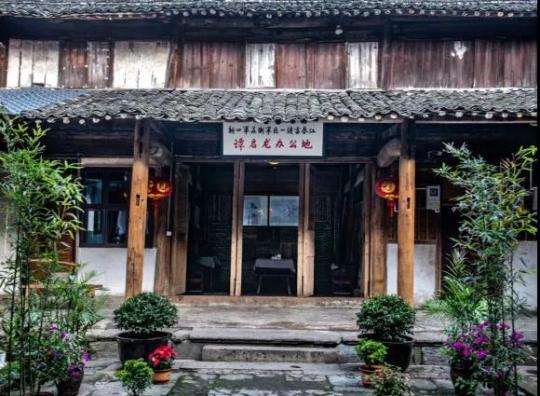
0 notes